Additional Powered by Purpose Features
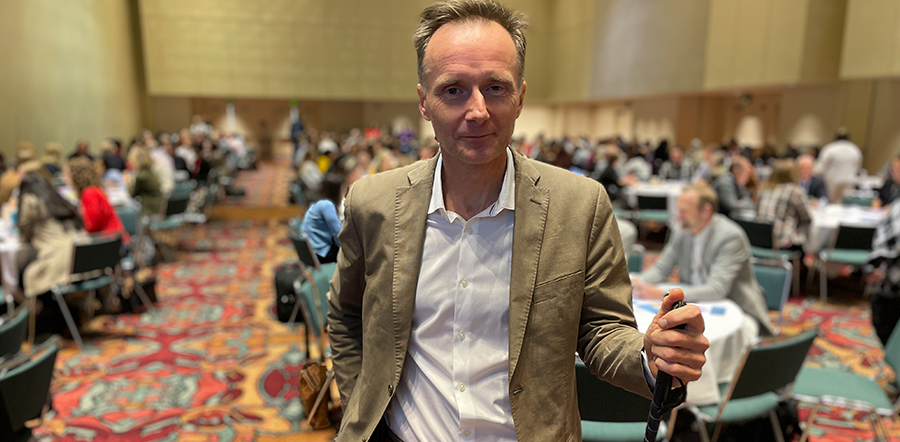
Matthew Dwyer was 32 when he stopped driving a car, 36 when he stopped reading physical documents, and for the last 12 years, has been legally blind. Dwyer has retinitis pigmentosa, a rare genetic disorder that affects the retina's ability to respond to light.
"I can perceive a very bright light source, but I can't see a person sitting in front of me. My other senses compensate, and I'm acutely and differently aware of my environment," said Dwyer, a Paris resident who works in Lilly’s Corporate Responsibility group. He’s keenly aware of the barriers of others. "I'm passionate about taking inclusion and making it a business reality, something that's tangible."
"There had been many moments in my life when I should have realized I couldn't see like everybody else. As a student, I'd go out to nightclubs, and spend hours talking to a potted plant," he laughs. “A self-deprecating sense of humor is essential for a person with a disability.”
"I was waiting to cross a busy street with my white stick, and an elderly lady stood beside me.
'I'll help you across the road,' she said, and I replied, 'Thank you.'
'You've got a bit of an accent,' she said.
'Yes, I'm British.' I replied.
She looked at my white stick and asked, 'Is there really nothing they can do for you?"
'No, I'll always be British.'”
Dwyer is a self-professed science nerd who grew up in the London suburbs, the boy who asked for chemistry and electronic sets for Christmas. The curious child that questioned, "Why can’t I breathe underwater like a fish?" Dwyer studied chemistry at Sheffield University in the UK. His curiosity expanded when the Channel Tunnel connecting England and France opened in 1994 and received his MBA from the Hautes Etudes de Commerce in Paris. After accepting a finance role at Lilly in France, he eventually worked in marketing, pricing and commercial management roles in Paris, New York and Indianapolis. Dwyer now works in our corporate social responsibility in Paris.
Removing barriers is near to his heart — in fact, with his sight-impaired colleague Darren Rowan, he hosts Lilly’s “Removing Barriers” internal podcast. In 2015, the pair started Lilly's EnAble employee resource group, which helps embed disability inclusion in our processes and helps employees get the accommodations they require.
To Dwyer, being inclusive also means being in tune with the disabilities of our patients.
"We know diabetes is one of the leading causes of sight loss. As we design our devices, we consider the patient experience. Our injectable diabetes medication pen has an audible click to indicate the medication was injected correctly," Dwyer explained. "Our websites are designed so that if I'm using screen reader technology, I can have the article read to me. In this way, every patient can get the same access to information about their medication."
Dwyer's excitement extends to applying inclusive design principles to our clinical trials. "As we develop medications, we have potential clinical trial subjects with mobility issues and cognitive or sensory impairments. We're working to make clinical trials more accessible to bring our medicines to market faster," Dwyer said.
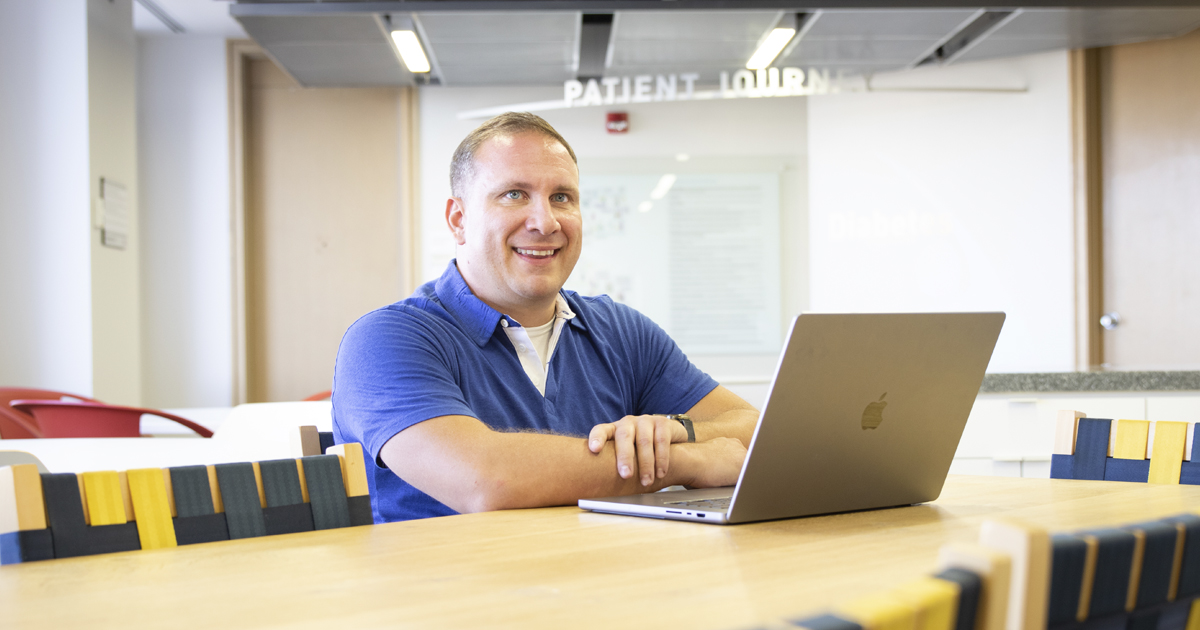
“When I started in software development, I learned that I was less interested in making code. I was more interested in how humans perceive things. When I went to graduate school, I was exposed to human-computer interaction — specifically, a combination of design psychology and computer science. I began to think deeply about how human beings perceive technology, and how we can improve their lives using it.
I come from a medical family and helping others has always been my motivation. Having a talent in technology, I asked myself, 'How can I help others?' Seeing someone struggle with technology is very concrete. By using my work, I could break down those barriers and help everyone use technology on a level playing field.
Digital experiences are often built with a bias towards people who don't have disabilities. This bias is often not intentional, but technology has been designed without them in mind.
With inclusive design, we can make digital products more enjoyable and more engaging for people with disabilities. A notable example is text messages, originally designed exclusively for deaf people, which are now used and loved by everyone. Inclusive design prioritizes people with disabilities. At Lilly, we encourage empathetic design processes to create experiences that make life easier.
As a designer and user experience professional, I am interested in how technology can positively improve human lives. My purpose is to ensure that Lilly is inclusive, which prompted me to help form the Access Lilly program, which aims to make our physical and digital environment accessible and inclusive for all.”
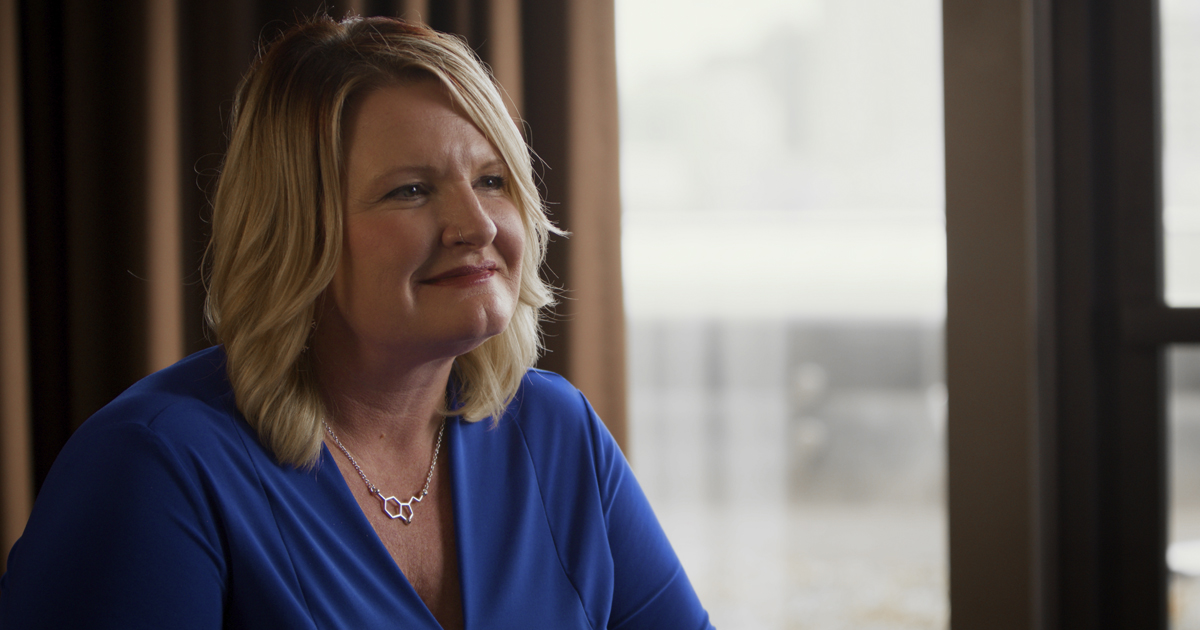
"Alzheimer's disease is relentless. It can be a thief of one's humanity, and although that seems very dark, it serves as motivation to rewrite the narrative to something brighter.
Relentless is also how I describe Lilly's commitment to Alzheimer’s. I have been inspired to see the analog of Colonel Lilly's "take what you find here and make it better and better" come to bear in our clinical trial programs. With each negative study, we have learned something and improved the following study so we can get closer and closer to the answer on behalf of patients.
As a behavioral neurologist and clinician educator in academic practice, I spent my days caring for patients with neurodegenerative diseases and their families, conducting clinical research, and teaching others about dementia. In clinical practice, developing a personal relationship with a patient and their family, I often observed the devastation and dynamics of living with Alzheimer’s disease and consistently shared my belief in a future with disease-modifying therapies.
I would frequently tell patients and families when referring them to a clinical trial — 'there are people much smarter than me working on this problem day and night. Be assured that during the period of my career, there will be a medicine that will meaningfully impact this illness.' Finally, one afternoon I left the exam room and had an epiphany: why wouldn't I want to play a more significant role in such progress?
My clinical experience prompted me to transition to a role in industry, even though delivering new medicines for patients is often a longer and more complicated journey than expected.
I am grateful to be both emotionally invested in our medical efforts and purposefully connected with the broader team as we continue to innovate toward a brighter future for patients and families living with Alzheimer’s."
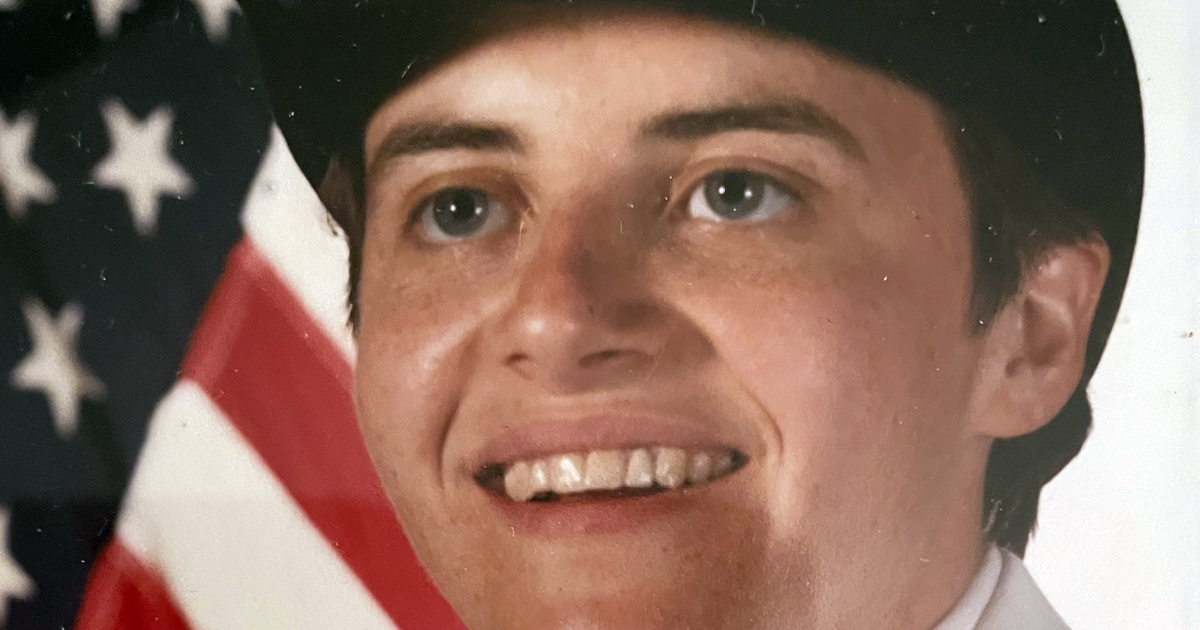
“I joined the Navy nurse corps two months after graduating from Indiana University. I was stationed at Naval Hospital Bethesda, now named Walter Reed National Military Medical Center in Bethesda, Md., then called up for Desert Storm/Desert Shield in 1990. I was on the United States Naval Ship Comfort in the Persian Gulf off the coast of Saudi Arabia. The USNS Comfort was vital in providing surgical and acute medical care to military forces. I worked in triage, critical care and assisted with surgical procedures.
I come from a military family. My role in the Navy allowed me to treat patients from the US Marine Corps, whom I respect, and the great men and women of the sea.
The Navy taught me not only to be a nurse to the patients but to be their family as well. Patients were away from home, in a hospital, facing inconceivable medical emergencies. Everyone pulled together and became family and advocates for the patients.
After the Navy, I returned to Indianapolis as a nurse at Methodist Hospital, but Lilly was my goal. When I was a child, we drove by Lilly, and I always said, 'I want to work at Lilly.' I joined the company in the sales division focusing on a medicine that treated sepsis. It was the chance of a lifetime. I wasn't just impacting one or two patients at a time, but I was able to impact a greater number of patients.
My military experience instilled a sense of purpose and discipline that we must maintain and stay focused because so many patients depend on us.
Never was that mindset more tested than during COVID-19. We were preparing to launch a COVID treatment for a new FDA-approved indication. My job was to support the global and U.S. medical affairs teams to ensure they had what they needed to educate and help patients going through the COVID disease process.
Ultimately, we all are a piece of the puzzle, but together, we're a team. My purpose is to effectively maintain our focus in our efforts in immunology to impact the lives of the patients we're here to serve.”
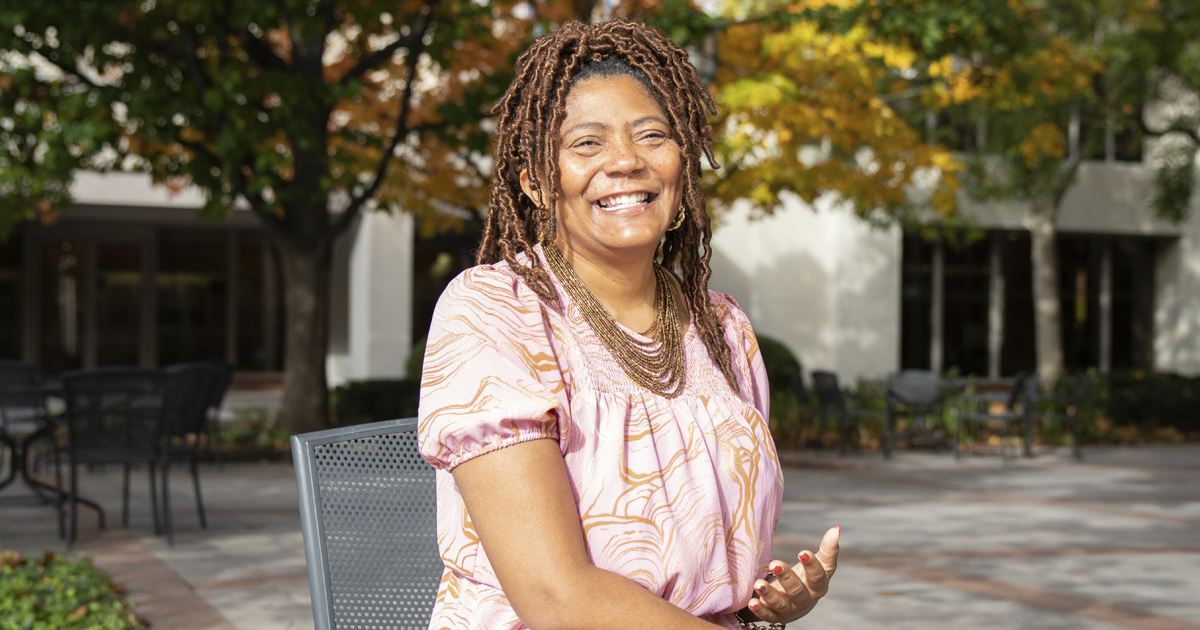
"'Do I have cancer?' I asked the nurse, 'yes, we think you do.'
I noticed her demeanor, so I had to ask her. The nurse and radiologist had their own breast cancer battles — they had been in my shoes.
With a history of "lumpy breasts,” ultrasounds and mammograms were routine. I wasn't concerned, so I went alone. When I left, my legs were like Jell-O.
In March 2020 I was diagnosed with invasive lobular carcinoma. My tumor was hormone positive or ER/PR-positive HER 2 negative.
My diagnosis came during COVID, so my battle was lonely despite a strong support system. My husband could only attend one appointment with me. Friends and family wanted to come over and help, but I needed to stay well to avoid complications.
An Oncotype DX test — a tumor sample — determines the likelihood of cancer recurrence and treatment course based on that number. My score was 9 — I was low risk. I had radiation, and based on my breast surgeon's recommendations, I opted for a single mastectomy. The differences between both breasts are overwhelming and make me self-conscious.
A DIEP flap procedure using my abdominal tissue and fat recreated a breast through a multi-stage process. A post-op expander stretches the skin, but because of COVID, mine stayed in too long. My body started to reject it and developed an infection.
Before joining Lilly in 2002, I was a neurosurgery nurse — a rewarding yet challenging environment. My nursing background pushed me to learn everything about my breast cancer type.
Some diseases and medications affect women of color differently, so I needed to understand what to expect. While many people shared their journey on YouTube, I didn't find anyone who looked like me or had the same diagnosis. So, guess who started a YouTube channel? Me.
It's essential for people going through cancer to understand their lives may be different for quite some time. If my purpose is to help someone get through this phase of their life until they can stand up on their own, then so be it. Because I am a survivor, being that calm in the storm is my new purpose."
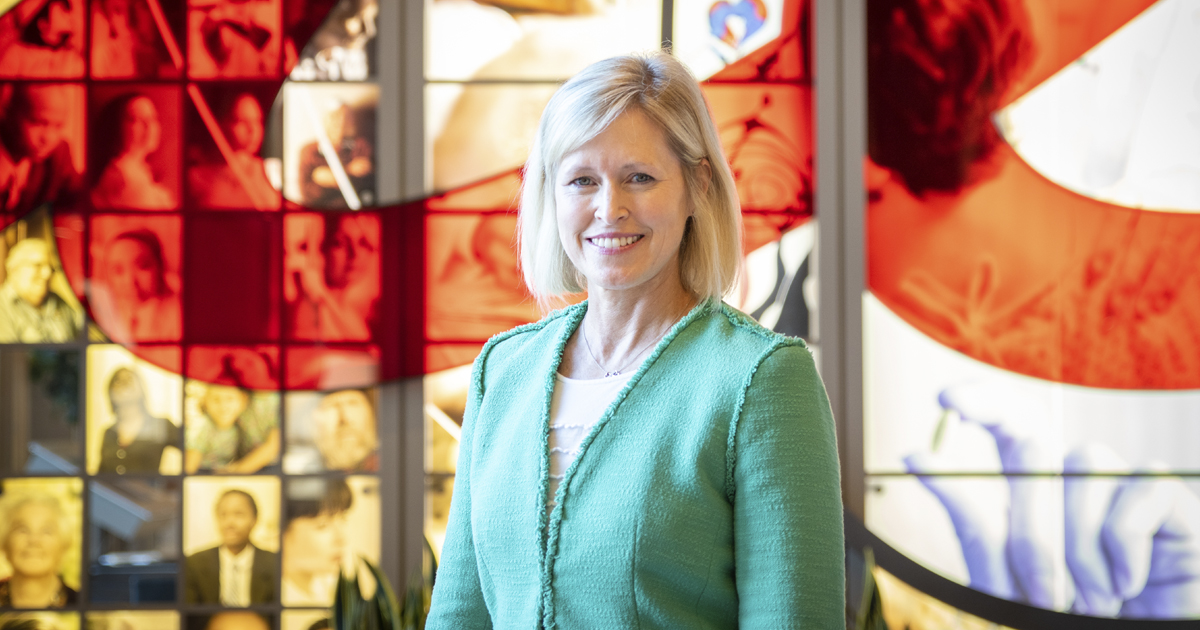
"I came to Lilly 22 years ago, after graduating from Duke with a degree in economics. My first job was in finance, which led to a cross-functional role as a Human Resources representative supporting that area. I loved the opportunity to have a broader influence and positively impact employee experiences.
As diversity, equity, and inclusion (DEI) continued to evolve, so did our organization. In 2021, I accepted a fantastic opportunity to lead talent management and DEI. In this new role I am able to integrate and embed DEI into our talent management processes.
People may question how a white female can relate to the journey of underrepresented groups and drive necessary changes. But diversity, equity, and inclusion connect to my core values, my faith, and the belief that all people are created equal and deserve an equal opportunity. I leverage my expertise in enterprise-wide change initiatives to fully embed DEI into our culture. I’m particularly encouraged this week, as we bring together more than 6,000 Lilly employees around the world for our global DEI conference — to embrace the rich dimensions of difference across our company.
Three things have kept me at Lilly. One is the connection to our purpose. I could do similar work for other companies but working for a company focused on improving lives is truly inspiring. The second is the people — working with committed, passionate, talented people with diverse perspectives has made the journey unforgettable. Finally, the opportunity for constant learning and growth makes it exciting.
What drives my purpose at Lilly is to attract and retain the diverse talent Lilly needs to create innovative medicines. My team gets the privilege of working on the full employee experience — while striving to create an environment where everyone feels like they belong. I am passionate about positively impacting our employee experience so that everyone can bring their best, authentic selves to work."
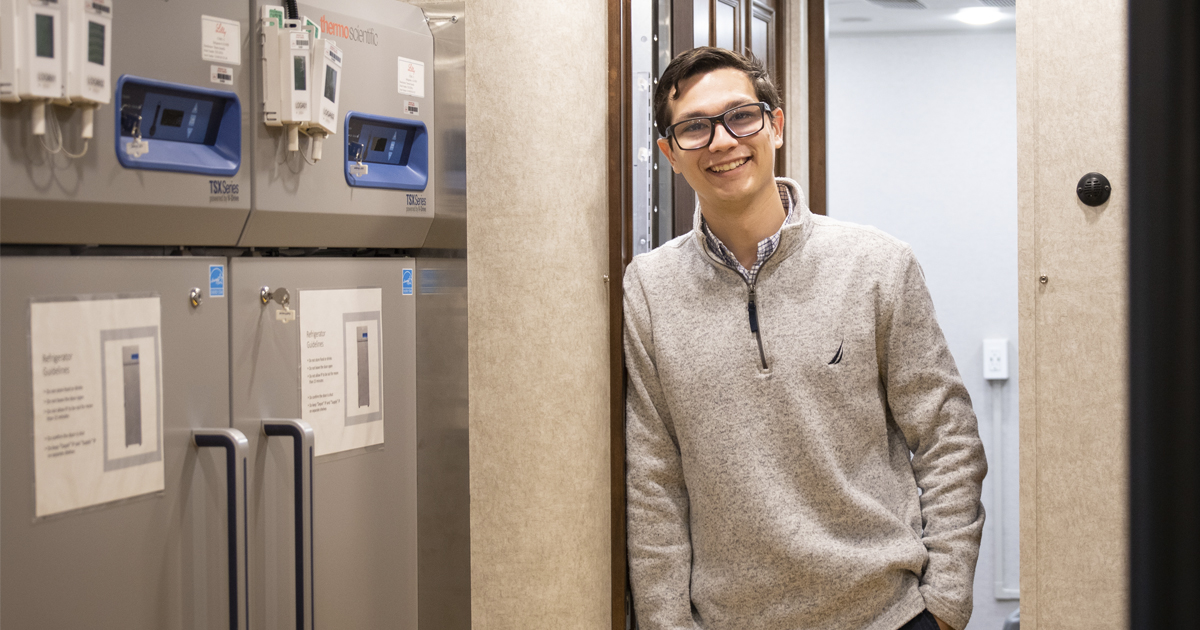
"Natural curiosity has proven to be my greatest asset in understanding how things work. As a logistics engineer, I focus on material movements. By talking to experts, I can create automated material flows that are sustainable and reduce waste.
I earned my Bachelor’s in Industrial Engineering at the University of Puerto Rico Mayagüez Campus. Many “historical” events in Puerto Rico -- Hurricane Maria, strikes, earthquakes, and COVID-19 -- made me understand that life is not always easy, but we need to learn and make things happen. That sense of resilience is characteristic of many young Puerto Rican professionals who had to navigate in times of uncertainty to achieve their goals.
I started my career as an intern at Lilly’s manufacturing facility in Puerto Rico, Lilly del Caribe, in continuous improvement. The opportunity to experience the Lilly culture at a young age made me realize I had found my purpose while enjoying my job and creating a network.
After graduating college, my wife, three dogs and I moved to Indianapolis and began working at Lilly’s global headquarters as a Center as a Continuous Improvement Engineer. While COVID was spreading around the world, Lilly was working to find a medicine that was able to fight the virus. Understanding that nursing home residents were a vulnerable population and had the highest mortality rates from COVID, Lilly needed to include them in clinical trials typically conducted in hospitals. That’s when Lilly brought the clinical trials to the nursing homes.
In the first phase, Lilly turned 10 RVs into mobile research units. I handled inventory management and layout, which is crucial when every inch of space counts. Every material had a location and a specific quantity and was placed in an accessible area for nurses to create a better flow and reduce time. Collaboration between various groups was a great experience that made me understand the value of Lilly in society as we fought this virus."
"I was born and raised in Taiwan, where I received medical training and my specialist license as a pulmonologist, but I later decided I wanted to do something different. I wanted to see if I could be a pharmaceutical physician, though there are not as many opportunities in Taiwan as there are in the US or Europe. Lilly Taiwan had one opening in 2015 for a clinical research physician role supporting autoimmune disease and osteoporosis — which had nothing to do with my specialty. Still, I was thinking, 'I want to see if I like that and the lifestyle in pharmaceuticals.'
Our Lilly Taiwan team helped successfully launch medicines for rheumatoid arthritis, psoriatic arthritis, psoriasis and migraine. In 2020, my family and I relocated to Indianapolis to join the late phase immunology team as medical director supporting clinical research in alopecia areata (AA).
Helping to bring medicine to a disease where the treatment options have been limited is what gets me out of bed every morning. With AA, something in the immune system begins to attack a person’s hair follicles and suddenly, they lose some or all of their hair. Until recently, there has never been an FDA-approved systemic medicine for AA.
A new treatment would be so important for patients to help them regrow their hair. Some people would argue it's just a cosmetic disease. They say, 'It’s just hair.' But for these people it’s so much more, including not looking like themselves.
It has been my passion to see a new medicine approved so that it will be available to patients and physicians — giving them a new option to treat this disease."
Our Lilly Taiwan team helped successfully launch medicines for rheumatoid arthritis, psoriatic arthritis, psoriasis and migraine. In 2020, my family and I relocated to Indianapolis to join the late phase immunology team as medical director supporting clinical research in alopecia areata (AA).
Helping to bring medicine to a disease where the treatment options have been limited is what gets me out of bed every morning. With AA, something in the immune system begins to attack a person’s hair follicles and suddenly, they lose some or all of their hair. Until recently, there has never been an FDA-approved systemic medicine for AA.
A new treatment would be so important for patients to help them regrow their hair. Some people would argue it's just a cosmetic disease. They say, 'It’s just hair.' But for these people it’s so much more, including not looking like themselves.
It has been my passion to see a new medicine approved so that it will be available to patients and physicians — giving them a new option to treat this disease."
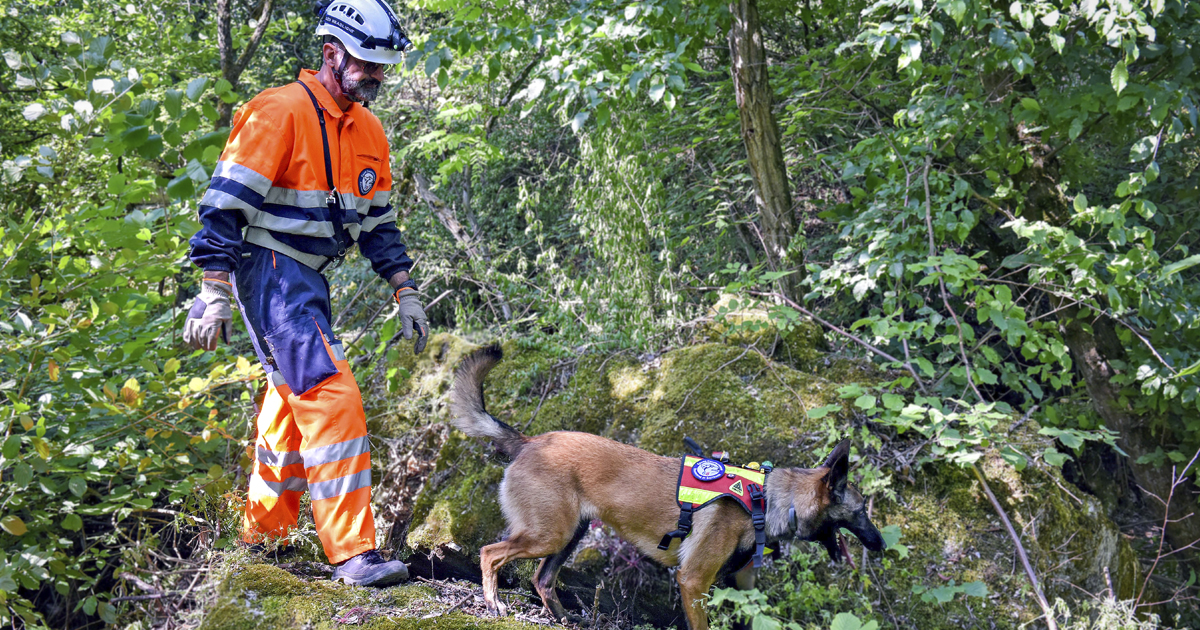
"I grew up in historic Strasbourg, France on the eastern border of Germany, separated by the famous Rhine River. As a child, I disassembled everything or played with my little chemist's kit. Here I am, many years later, working as an engineer in a lab. Childhood dreams do come true.
Almost 30 years ago, as a young graduate biochemist technician fresh out of Jean Rostand High School, I joined the quality control laboratory team at Lilly France Fegersheim south of Strasbourg.
During the first years of my career as a laboratory technician, I was immersed in the Lilly quality culture. I understood the interest that we must take in the people who depend on us — people who rely on Lilly products to maintain their health which for some it is a matter of life or death.
As I gained experience, I continued my development by joining the laboratory equipment support team to become a Quality Control Process Engineer in the QC Incoming/Device laboratory.
My job always guarantees the best reliability of the analytical systems and the highest level of quality possible. Everything I do at Lilly is guided by the awareness of the people we serve and the trust they place in us to ensure their best health.
This awareness of others and my passion for dogs pushed me to combine these two components last year. I decided to join a canine search and rescue team with my Belgian Malinois companion Rayka to help locate missing persons in the Vosges mountains.
With Rayka, we form a perfect pair. We train every week always with the desire to save lives. This desire is my purpose and comes from the years of experience I acquired working at Lilly."
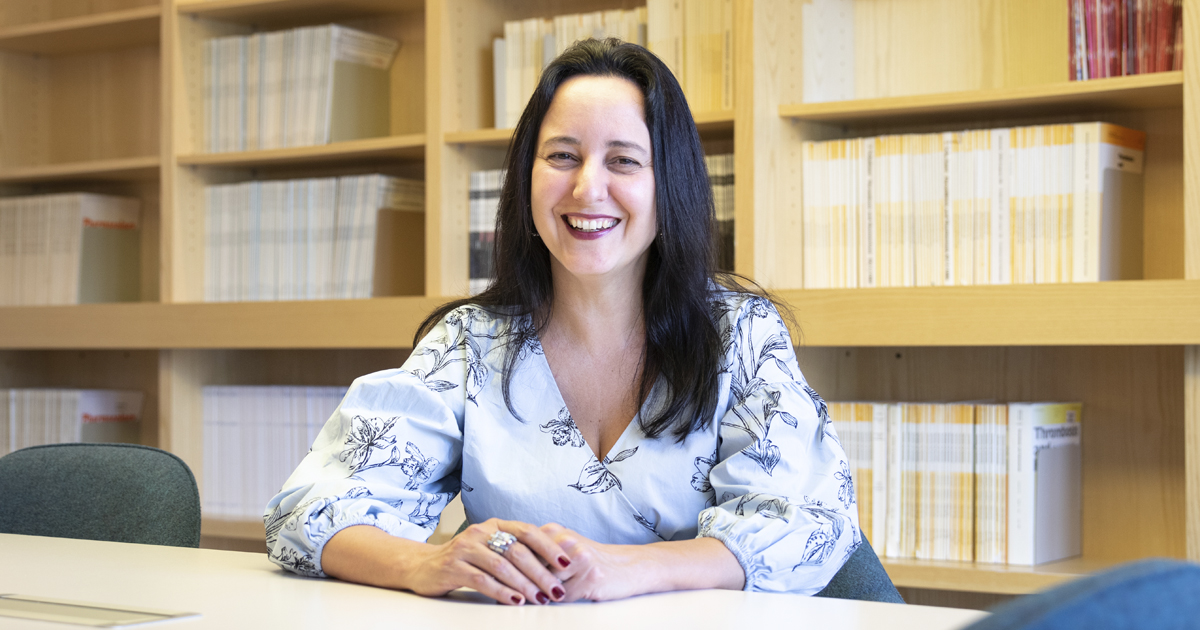
"As a pediatric allergist and immunologist, I recognized how different communities experience a condition called atopic dermatitis (AD), more commonly known as eczema. Some studies suggest that people with skin of color can be disproportionally affected by AD and struggle with a more severe presentation of the disease.
Intense, persistent itch is the most troubling symptom of this condition. It creates an itch-scratch cycle – the scratching generates more skin inflammation, and bacterial skin infection, which worsens the itch.
This disease is more prevalent in children, and it can be harder on them and the entire family. Severe itching interferes with sleep quality of those affected and family members, ultimately impacting school and work productivity.
In clinical practice in my native Brazil, I worked with families whose small children were struggling because they couldn't have normal lives. The physical symptoms of AD are usually associated with behavior issues and mood disorders. Even in hot Brazilian summers, those kids would be completely covered because they were ashamed of their skin.
My impact was limited because I could only help a few families with few unreliable treatments available. Now, working in the pharmaceutical industry – I could finally do something that could impact more people.
At Lilly, I'm helping lead a clinical development program for an investigative treatment option for people with moderate-to-severe AD. In addition to the traditional studies required for registration, we started a clinical trial dedicated to people with skin of color. Our pediatric program also aims to include people with different skin tones. We hope to generate new information using innovative tools to better understand how a potential new medicine may help.
I think of those people I could never wholly help in my clinical practice because we didn't have adequate treatment options. I get speechless to think that now these people may benefit from a new treatment - that's my purpose."
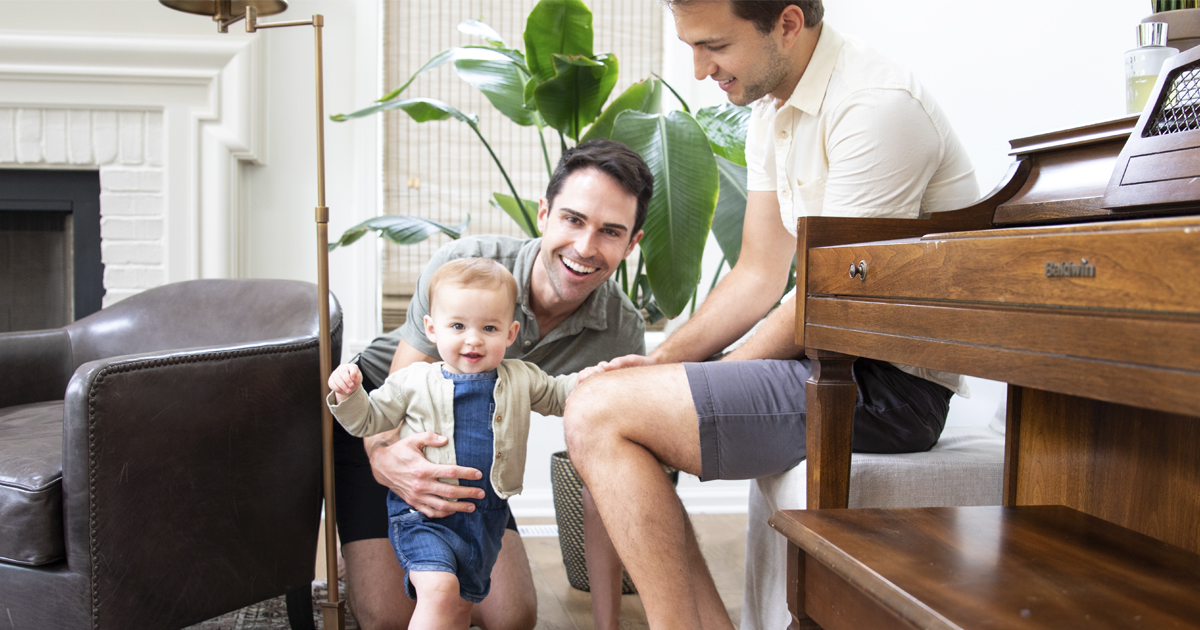
"As the oldest of five children, family is truly the most important thing to me. Shortly after marrying my husband in 2018, he and I began exploring how we could build a family of our own. After lots of research and discussion, we decided that surrogacy was the right option. In 2019, we matched with our gestational carrier, who lives in northern California, and although there were twists and turns at the beginning of the process, she became pregnant with our daughter in late 2020. She delivered a healthy, beautiful baby girl for us in 2021. We were lucky enough to both be in the delivery room for her birth, and it was one of the best moments of my life.
I don't know if my younger self ever would have believed I'd be married, with a husband and a daughter. I haven't always been so comfortable in my skin. When I came out as gay in high school, I was scared. It's hard to come to terms with something that makes you feel like an outsider, something seen by some as wrong. But it is so powerful to finally share your true self with the world. I've been blessed to grow up in a family that loves and supports me no matter what. I'm also fortunate to work at Lilly, an open, accepting culture that actively works to lift people from all walks of life. Its reputation for caring and inclusion was a significant factor in my decision to join the company.
Since coming out, I've continued to feel more comfortable in my skin, and better live my purpose. I'm driven by optimism in my personal and professional life and always feel there is room for improvement. To make things better. Make myself better. I don't have a traditional career path – starting as a graphic designer, getting an MBA, working on a consumer brand in marketing, and now, at Lilly, in Global Communications. But somehow, each experience has built upon itself to make me more equipped for the next.
My purpose aligns with the Lilly purpose: to make life better for people around the world. As Lilly brand manager, I am responsible for ensuring we put forth a consistent brand image to make our purpose clear."
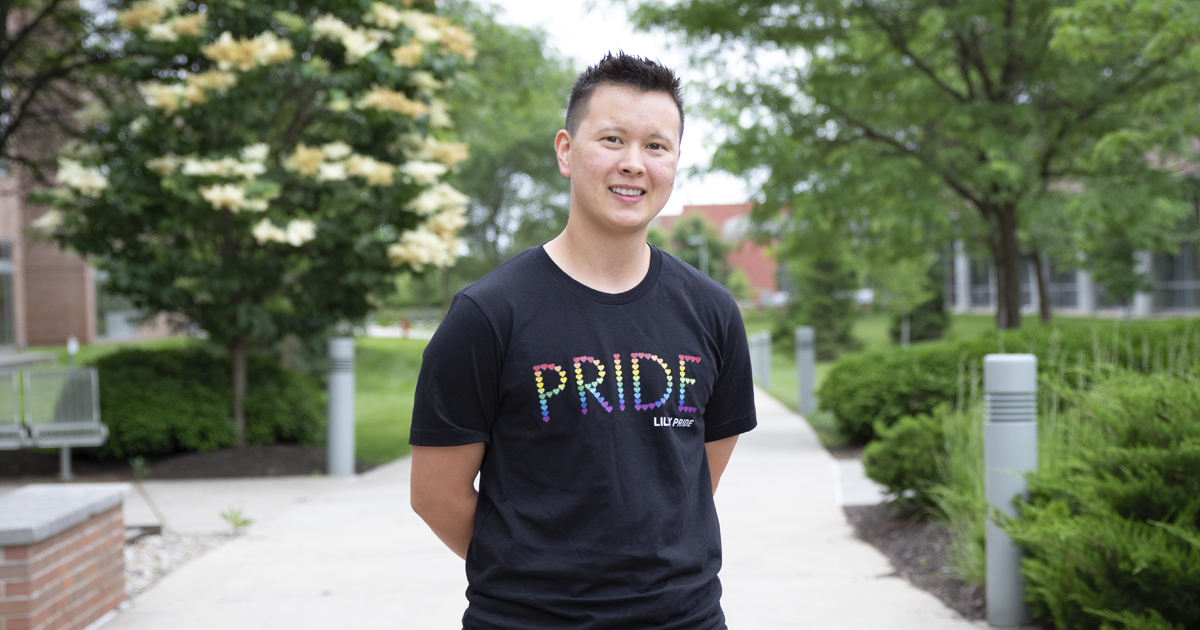
"My three loves in life are STEM, music and the outdoors. Having at times been excluded from full participation in each of these spaces because of who I am, I feel a responsibility to make these spaces better for the next person so they might not have to overcome the same challenges I did. My purpose is to be here and to be myself so that the next person can know with confidence that there IS a place for them.
I spent most of my young life and adolescence utterly oblivious to the fact that queer people exist – the concepts of gayness, transness, and queerness were intentionally kept from me well into my adolescence. I'm so open about being transgender because I would have benefited so much by simply knowing that trans people exist and that transitioning is an option.
In retrospect, I can identify so many signs from my youth that were indicative of my transness. I always thought of myself in genderless or masculine terms and was constantly uncomfortable when people would associate me with the female or feminine, even in my earliest memories.
As a young child, I remember asking my parents to read entries out of my dad's medical encyclopedia in place of bedtime stories. As I grew academically, my affinity for science and math became increasingly clear, so studying chemical engineering was a natural choice.
I support the supply of active pharmaceutical ingredients for clinical trials at our Bioprocess Pilot Plant. I was drawn to Lilly in part due to its proximity to the field of medicine – something that has fascinated me since I was young.
I have been identifiably genderqueer for most of my life, so it was important to me to work somewhere I wouldn't face discrimination for being who I was. Lilly stands out as a company that makes active efforts to improve diversity, equity and inclusion not only within its walls but also externally. The Lilly Pride employee resource group has been instrumental in making me feel safe, seen, understood and supported as both an individual and professional."
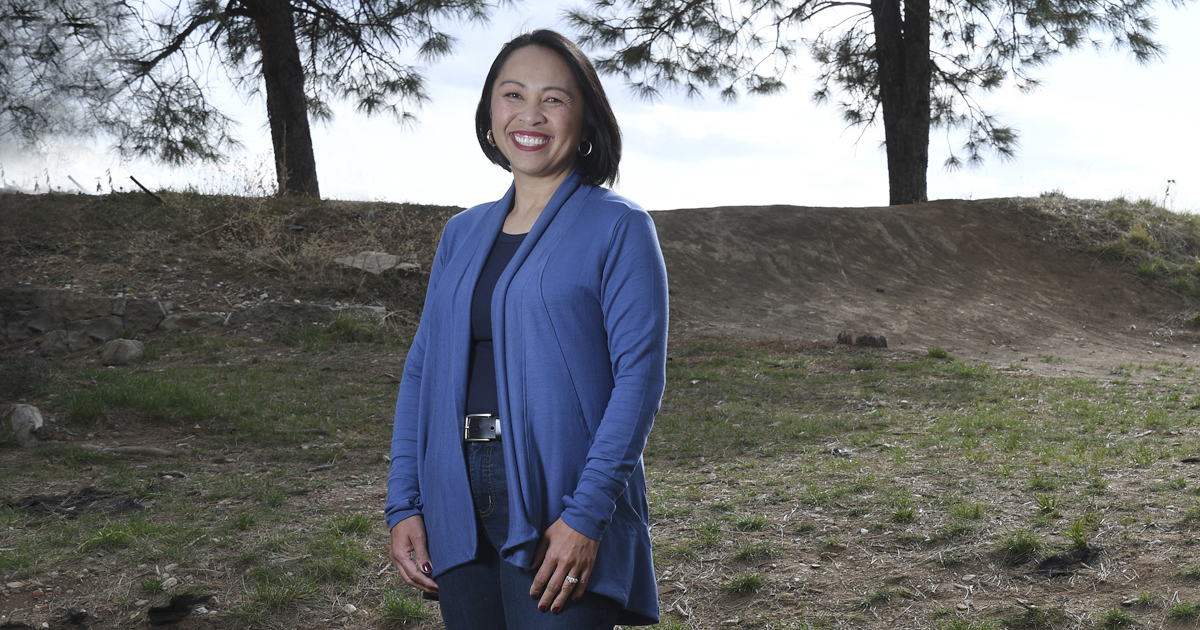
Part 1
"I was born in Vietnam within a few days of the fall of Saigon in 1975 and the end of the war. Mine is a story like hundreds of thousands of other Vietnamese boat people who escaped the new regime. We lived under very difficult circumstances in Vietnam for the first five years of my life, and ultimately my parents decided we had to leave to forge a better future. They risked and lost almost everything, including their very lives, for their children. My Mom, Dad, myself, and my two sisters lived in a refugee camp in Thailand for about a year and then miraculously were sponsored to come to the United States in 1981. My twin brothers were born in the US that same year.
There are many dimensions of diversity that I carry. Some that you can see — I'm an Asian woman, for example. Many you cannot see – I’ve been a lifelong remote worker, I'm a Buddhist. However, the dimension of difference that has shaped me more than anything is my status as a refugee — something that I have not talked about for a very long time.
I attended graduate school in Atlanta. I spent 10 years there, where I started my career as a Lilly sales professional. This city girl took her first sales assignment in a rural part of northwest Georgia, and it was a fantastic experience. I was always the only person that looked like me anywhere I went, but I didn’t let it get to me. Yes, I did face prejudice and racism as many minorities do. I just tried to find a way to connect with people and learn and move forward.
Before I came to Lilly, I devoted myself to helping people with schizophrenia, managing insurance formularies of a new class of psychiatric medicines. In that process, I found that Lilly was one of the innovators of these novel medicines. I knew Lilly would be a great place for me to devote more effort to helping people with serious mental illnesses. That’s why I came to Lilly more than 23 years ago."
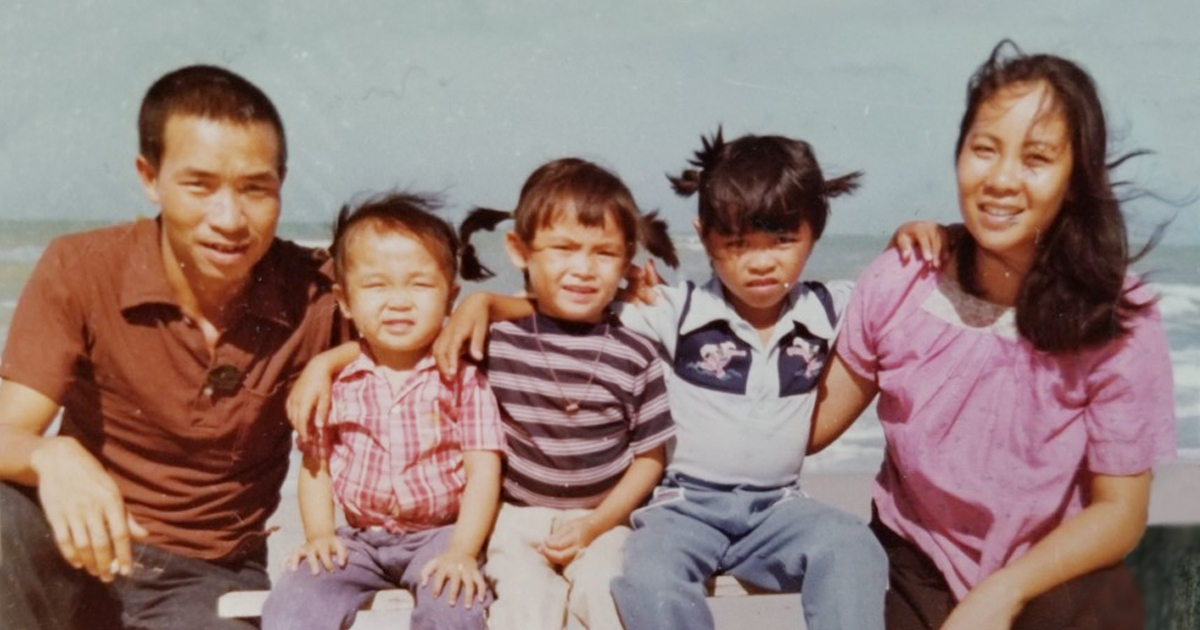
Part 2
"During my career at Lilly, I've been lucky enough to work on many medicines that help people with breast cancer, diabetes and mental illness. Knowing that your efforts help people live better lives — and that your job is directly connected to delivering outcomes and improving their health — is profound. That's my purpose.
Beyond the medicines we create, there is something so special about Lilly people. More than two-thirds of my wedding party, my bridesmaids, were Lilly co-workers. I've been with Lilly longer than my husband. I've had all my children with Lilly, and my best friends are at Lilly. So, it's more than just a place of employment. I've been here almost a quarter-century, so I've grown up with this company. I've matured as a person, as a leader, mother, and wife during my time at Lilly.
People ultimately keep us here because we have a similar purpose to people who work in health care. It's about helping people. I've had multiple jobs at Lilly. I spent seven half years in sales, spent time in drug development and worked in health outcomes for most of my career. I've worked on the commercial side and the science side.
Everything that I've done here has engaged my mind and heart, and I have a ton of fun. We work hard at this company. It's complicated, complex, high-science, challenging work. However, when your mind and heart are engaged, you know that your efforts will help people. It all comes together to be my purpose.
None of us live life without challenges. We differ in intensity, diversity, and types of challenges, so yes, I've had difficulties. Any challenges that I have professionally are quite frankly minuscule compared to many difficulties that many other people have. I've had difficulties being a Vietnamese California salesgirl in rural northwest Georgia, but that's not an intuitive connection that you make. My worst day in America is better than my best day in Vietnam.
Talking about myself is a very non-Vietnamese, non-traditional Asian woman thing to do. It has taken me years and years to find my voice. Now that I found it, I think it's a responsibility that I use it."
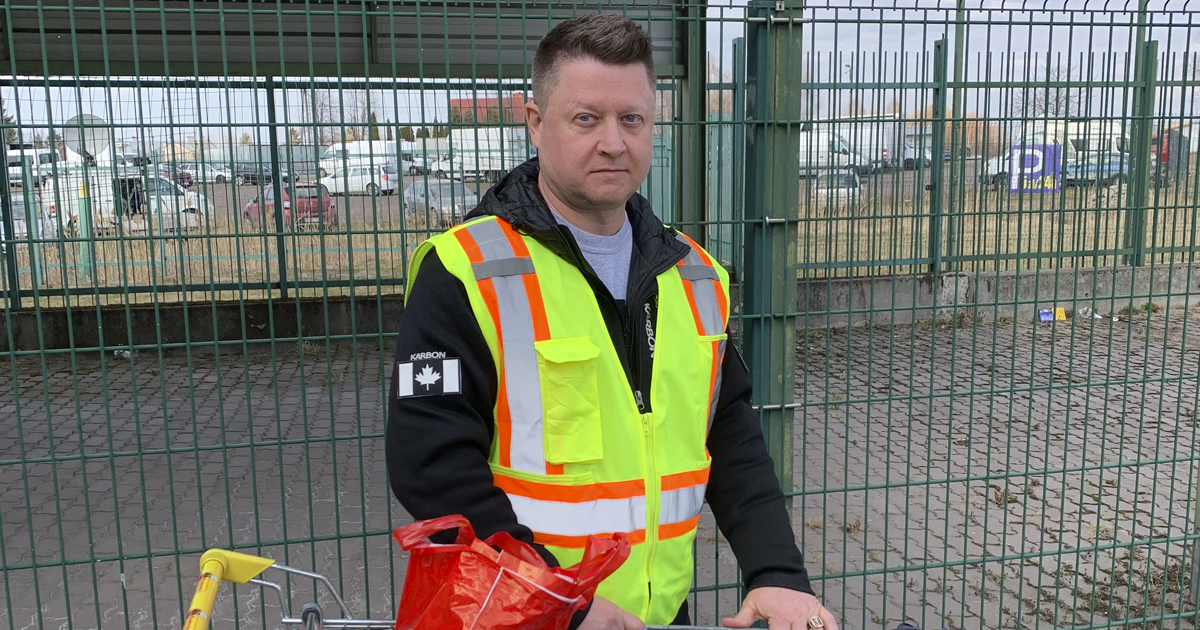
"Like everyone else, I watched the news coming out of Ukraine and thought, 'I wish I could do something — what if I went there? People are leaving everything behind. Surely, there's something for me to do if I show up.’
I want to make a difference — that's my purpose. The only real accomplishment you have in life are the traces you leave in someone else's heart or mind. It's about the people you've touched and whether you've taught them a little lesson.
My wife told me, 'You can go, but I don't want you to cross into Ukraine because I know you'll be at the border.' But that's what I kept doing — at least 10 times a day. It was like a carousel; they wanted to leave Ukraine but were desperate to return home.
I had a shopping cart I pushed filled with bags, children and animals all day. I would escort refugees across the border where they received a SIM card for their phone in Poland, water, food, and clothing, and put them on the bus to their next destination. I worked non-stop, 10 to 12 hours a day. It was hard to go back to my hotel every night and tear myself away from the situation. People were crossing 24 hours a day. But I needed to sleep.
A woman I helped cross the border said, 'I want to take a picture with you because you're my hero.' Her husband has died in the war, her sons are fighting, and she thinks I'm a hero because I have a shopping cart? She's going to God knows where and thinks I'm a hero? I felt so small. It's probably the worst use of the word hero ever in the history of heroes.
Ukrainians have a lot of dignity; they are proud, resilient people. A little girl I escorted with her family was walking behind me, all happy and singing this cute song in Ukrainian, so I started filming her and posted it on my LinkedIn. Someone translated what she's singing: 'We're walking towards new adventures and inviting new adventures.'
As two teenage girls boarded a bus, they smiled and said, 'Life is good. We're here, and we're safe.' They don't know where they're going or their next step — what a lesson of humility for us."
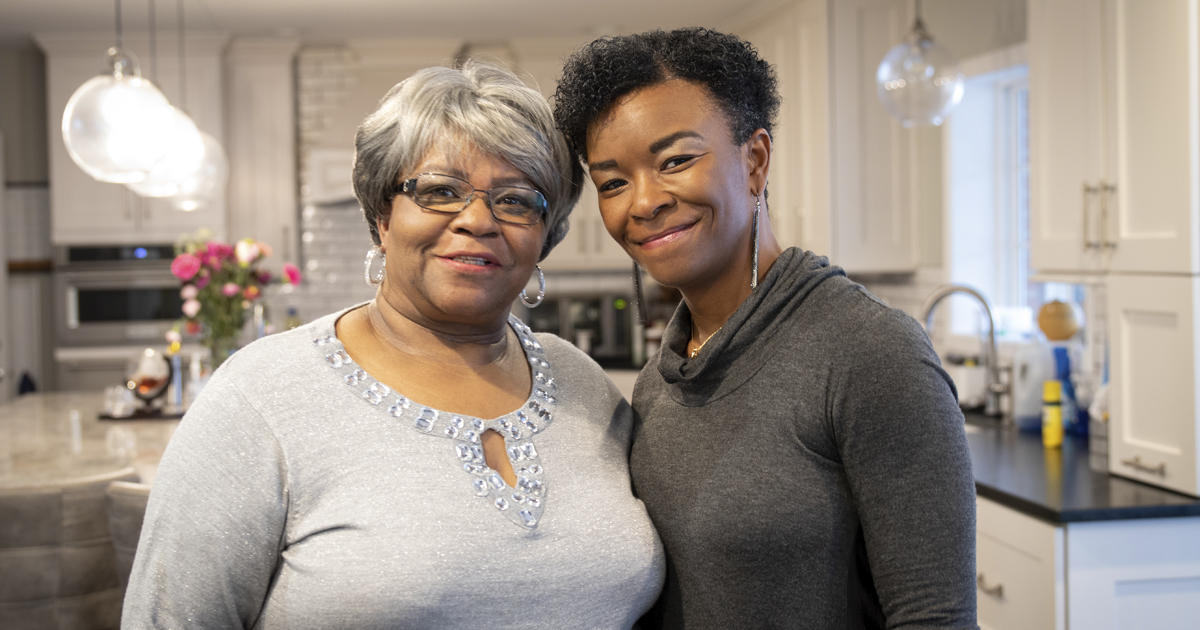
"I believe my mother and Colonel Eli Lilly were cut from the same cloth.
I grew up in a lower-income Indianapolis neighborhood. I was raised by a single mother who, despite her own experiences, had the vision and audacity to expect greatness from her children. She always talked about college like it was a non-negotiable requirement, even though she was married with children by 17. I remember learning in eighth grade that college was not mandatory. When I rushed home to share my newfound knowledge, she paused, gave me the ‘you have lost your mind’ look and said, 'It's not mandatory for other people but, it's mandatory for YOU.'
At that moment, my mom made the seemingly unattainable my only option. Most people in my neighborhood would never attend college but that was no longer on my radar. When I think about all my mom did to give her children the expectations and opportunities she never had – I'm filled with awe. Early in my career, someone said they knew I would be successful because I had no idea that I wasn't supposed to succeed. Thanks Mom!
That same audacity to expect success, despite overwhelming odds, is at the core of everything we do at Lilly. It's the mindset that Colonel Eli Lilly had when he founded Lilly and set a standard for quality, caring and discovery that was unheard of in the 19th century. This fundamental presumption of success is the only way a company in Indianapolis becomes a global leader in the pharmaceutical industry or a little girl from Brightwood becomes a corporate executive.
Working for a company built on the belief that defying expectations is the standard is what motivates me and makes me proud to be a part of Team Lilly.
As a mother of two boys who will one day face overwhelming odds, I can only hope to instill the exact same expectations in my sons."
*Davis was inducted into the Indiana University Kelley School of Business Academy of Alumni Fellows in 2021.
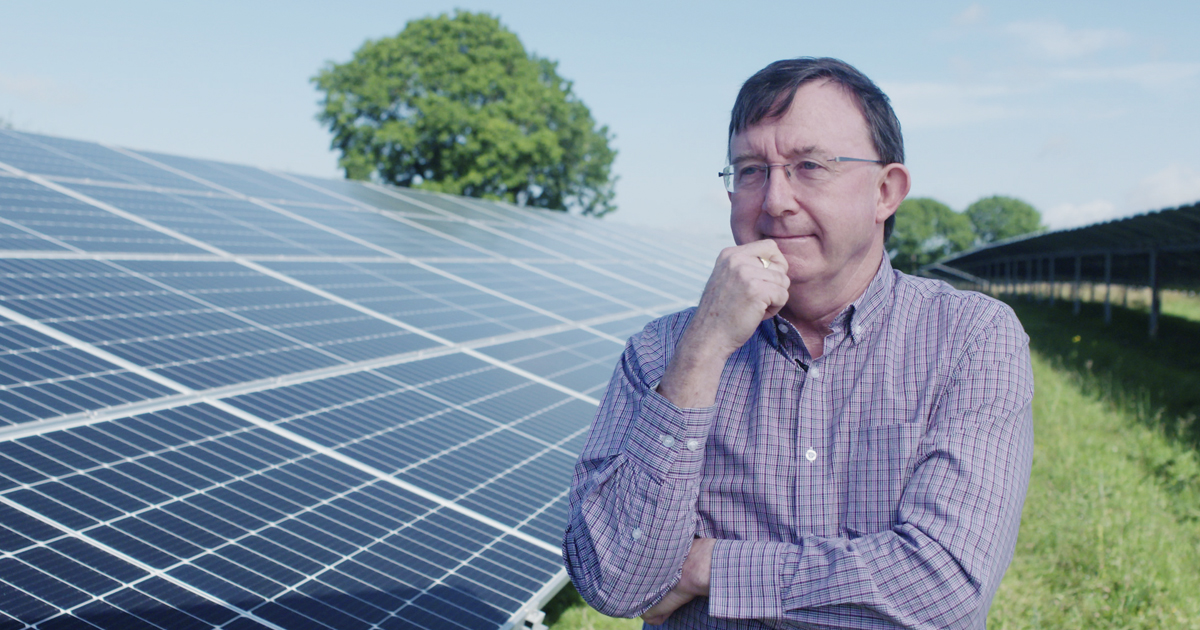
"When I started at Lilly Ireland, little did I realize that 42 years later I’d still be here. After graduating from the University College Dublin with honors in chemical engineering, I arrived at Lilly and told myself, 'I'll give them four years.' I had little knowledge of Lilly but was impressed by the respect they had for people.
I’m proud of the leadership roles I’ve had at Kinsale. We initially performed vital intermediate production processes, but we weren’t producing the final product. We evolved, demonstrated a level of capability and excellence, and then entrusted with producing medicines that were approved for use globally.
A seminal moment came early in my career after I started in manufacturing. My future wife at the time was hospitalized with a suspected life-threatening illness. I was sitting next to her bed, and she was getting an IV when the nurse came into the room. Lo and behold, she injected into the drip a medicine that I’d been personally making months earlier. My purpose became reality.
I share the history and heritage of our site with new employees. Part of that heritage is respecting each other, our neighbors and the environment.
When we investigated alternative energy sources, we knew we had to be considerate of our neighbors and the landscape for which we are known. Solar energy and Ireland don’t exactly go hand and hand. We’re at the same latitude as Newfoundland in Canada, but it fit our goals for sustainability, improving our carbon footprint. I was proud to be a driver of that initiative.
Kinsale, County Cork, is a historic area but was economically depressed before Lilly arrived to contribute good paying jobs and careers. In parallel, the town resurrected itself, recognized its scenic beauty and became a tourist destination known as the 'gourmet capital of Ireland' for all its fine restaurants.
When we at Lilly talk about our objectives and mission to make lives better for people, it’s more than just the medicines they take, it's also about the environment they live in and a future for our children."
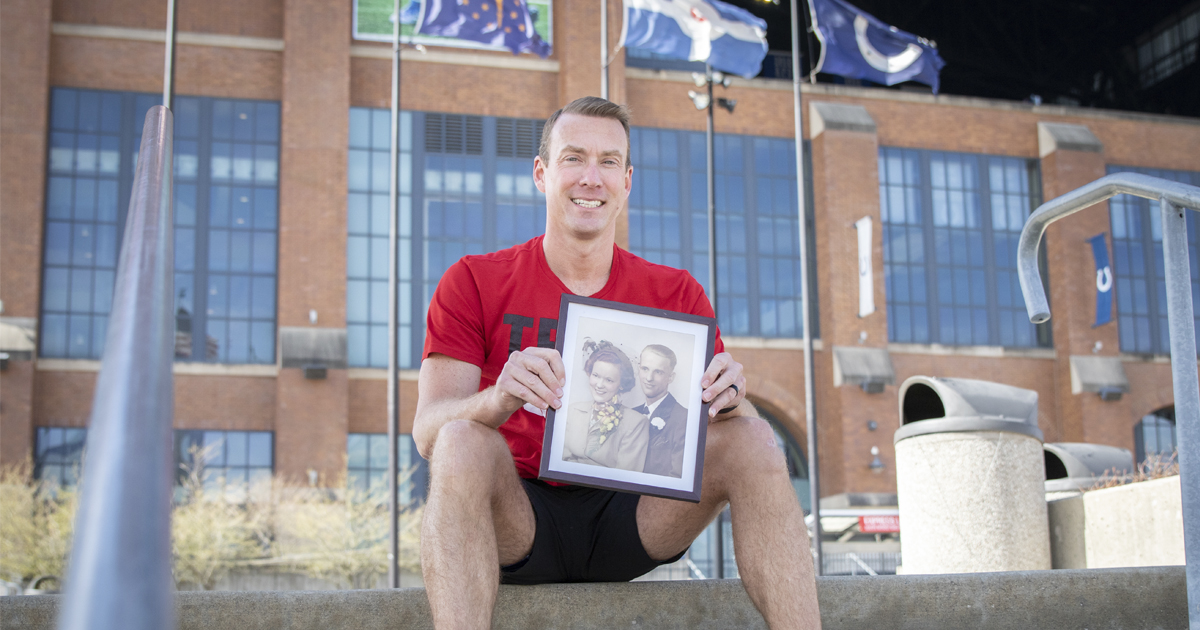
"After working for several consumer-packaged-goods companies, I came to Lilly intending to have a more significant impact on people's lives. While healthy snacks and green grass can bring consumers simple joy, Lilly’s medicines play a key role in people's lives.
Often associated with death, oncology was daunting for me. I lost both of my maternal grandparents to lung cancer as a young adult. What could we offer people battling cancer? A few more months? Months where they can do the things that matter? Fast forward … Lilly is now developing targeted and innovative combinations offering hope to people with new treatment options for cancer and better quality of life.
My grandfather died six months after his diagnosis – the treatments took a devastating toll on him. My grandparents were important fixtures in my life, especially my grandmother, who was also diagnosed with lung cancer. After witnessing what her husband went through, she decided to forgo treatment – which I respected. They were lifelong smokers who, at the time, didn't understand the implications of smoking. There is a stigma with lung cancer – 'I was a smoker and caused this myself.' Some people with lung cancer have never smoked, but they deal with misperceptions they did this to themselves. It could be environmental, age or genetics.
A tangible way I could honor my grandparents is with the American Lung Association's (ALA) Indianapolis Fight for Air Climb. Lilly employees have a history of being the highest fundraisers and fastest team in the climb. This year, Team Lilly is comprised of a small team from our oncology group, and we partnered with the Life Center, Lilly's wellness center on our campus. On May 8, we'll race up and down 2,000 steps at Lucas Oil Stadium to raise money for ALA's life-saving research, advocacy and education work.
Working closely with the ALA, I owed it to them and their mission to defeat lung cancer, create a tobacco-free future, and champion clean air for all. Plus, Lilly encourages overall employee wellbeing, so I thought it would be a good fit for Team Lilly."
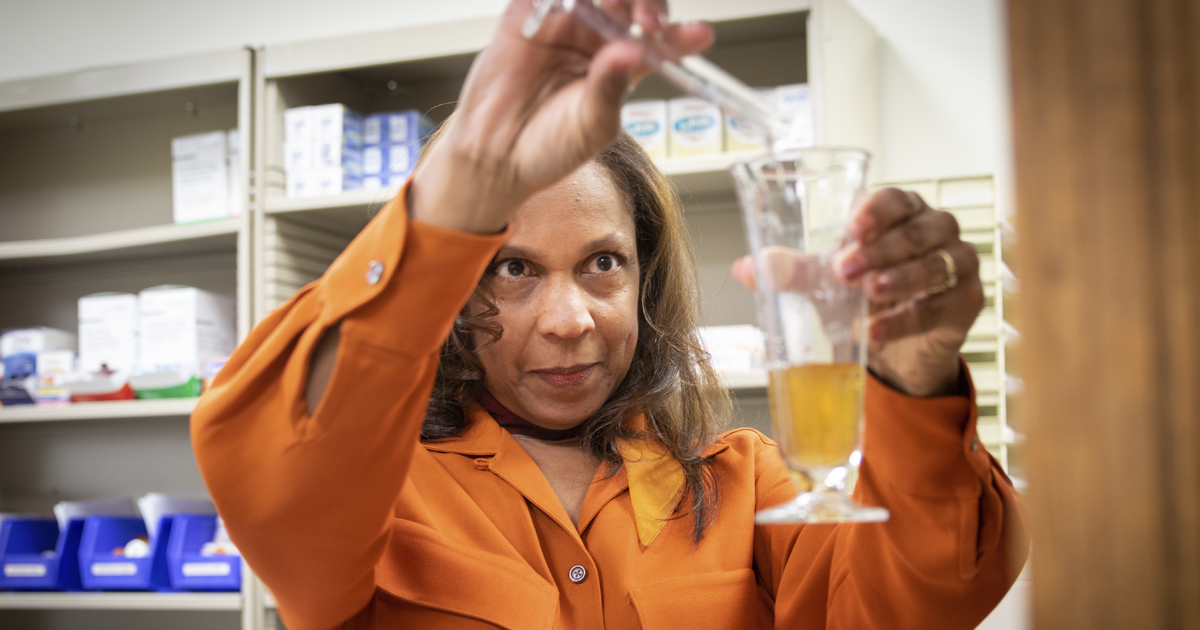
"My professional career at Lilly spans almost three decades. I've designed and executed clinical trials in all four phases of drug development. The best part of the journey is staying in touch with my passion for science, which started with a science fair project in grade school. Teachers in elementary school significantly impact whether children are encouraged to pursue answers to their questions. I seized the opportunity early on to research and illustrate an atmospheric phenomenon.
I grew up in a family of healthcare professionals. I opted for pharmacy school, where the core curriculum was patient care and managing drug therapy. It wasn't until my last year that I was introduced to the possibility of using my clinical skills in a research setting. I was excited to apply what I learned in pharmacy school to help develop medicines.
During my first few years at Lilly, I learned the strengths of each department's contributions to drug development. I also recognized that clinical trials can be designed by many healthcare professionals. I partnered with physicians, other clinicians, and HR to conceptualize the clinical research scientist role. Several years later, physicians trained outside of the U.S. became the first to fill this new role, quickly followed by others with graduate-level degrees.
No matter what setting I was working in, I wanted to improve the lives of people with diabetes. My older sister was diagnosed at age five with type 1 diabetes. By the time she passed away, she had many complications associated with diabetes, like neuropathy.
As a clinical research scientist, I love diving into physiologic mechanisms and tailoring therapies that help patients. I am energized when my team delivers quality results because I have consistently elicited diversity of thought. Iron sharpens iron!"
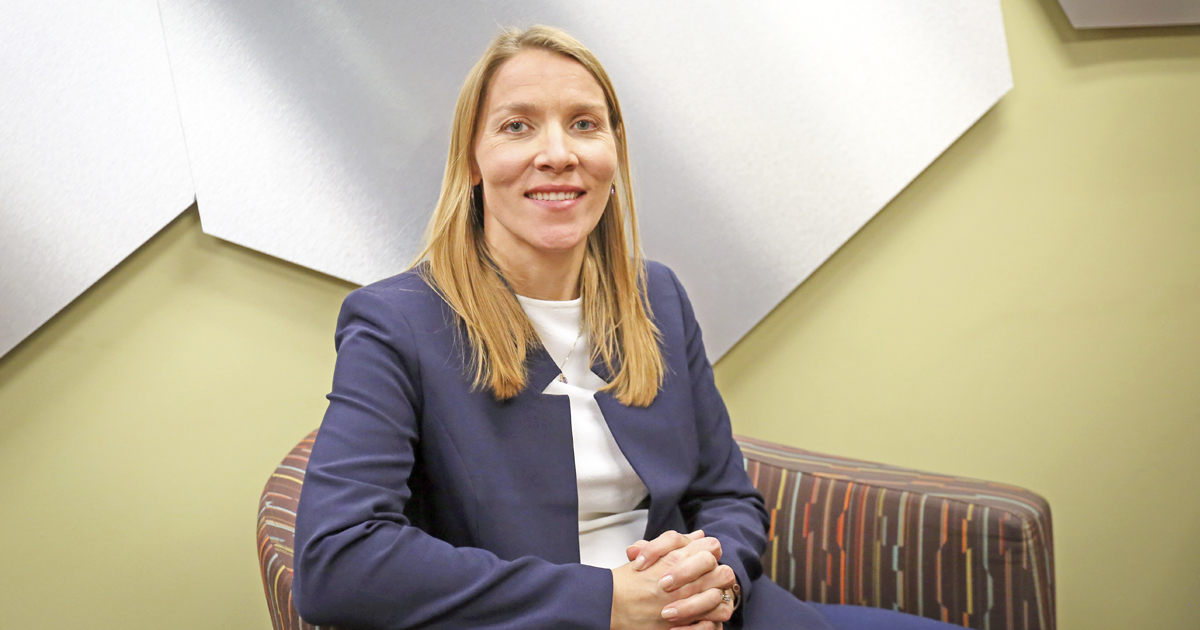
"I am the seventh child of a family of 10 children. Four of us are within five years of each other, spent all our time together growing up, and remain close. My mother worked full-time in a family business with my father. She is one of the strongest women I’ve ever known and takes on big challenges in stride, even after my father developed significant health issues.
I joined Lilly in July 2020 as a physician-scientist in endocrinology after 12 years in academic medicine. I support a potential treatment for obesity -- a complex disease, and that challenge makes it a rewarding clinical area.
Early in my fellowship, I focused on people with type 1 diabetes, who are unaware of a deep drop in blood sugar. I switched my research focus to obesity after treating people who had undergone gastric bypass surgery. The surgery has a dramatic impact on the lives of people living with obesity, including improvement in obesity-related complications, particularly type 2 diabetes.
I began to focus my research on the effects of obesity on the brain reward system. Neuroimaging is used to study the differences in the brain caused by obesity and interventions for weight loss. My work and others demonstrate differences in the brains of people with obesity that may contribute to the challenges of weight loss and maintenance.
When I began caring for patients in the bariatric surgery clinic, I had to challenge my own prejudices about what is obesity and how a person develops this disease. After delving into the science, I became invested in growing an understanding of the complexities of obesity. As a medical professional, I believed that I could help others understand and address gaps in obesity care.
To be a part of driving the field in a direction that provides meaningful treatment options and transforms obesity care fuels my purpose. It’s rewarding to be surrounded by a team that supports this work and challenges me as we create solutions for people living with obesity."
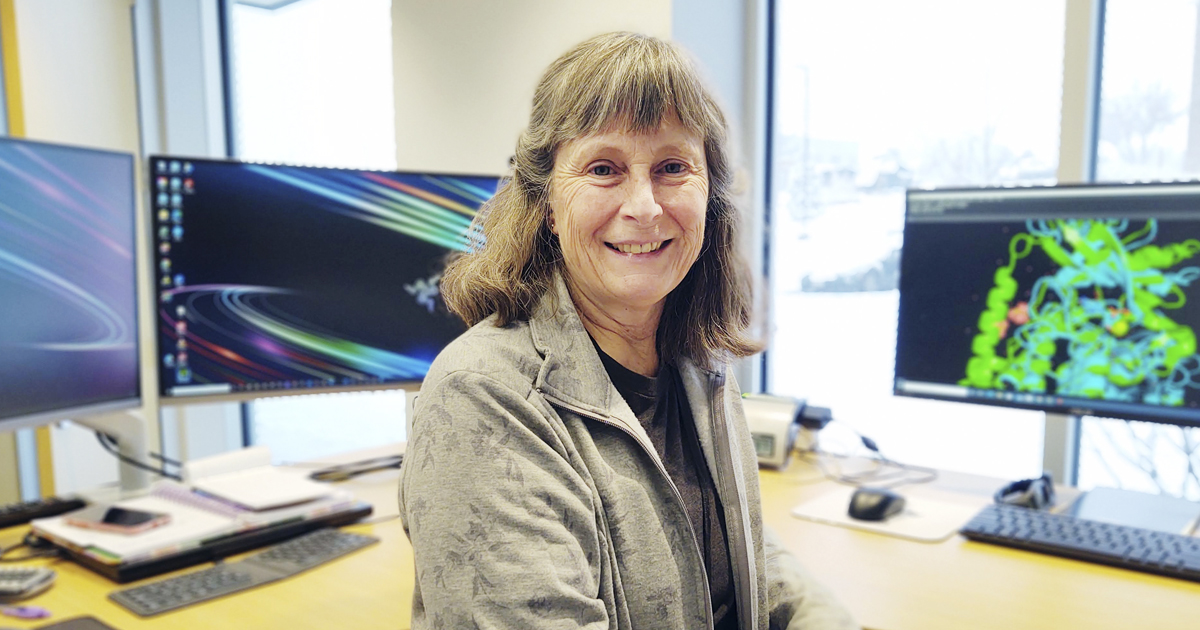
"Science has always captivated my attention. I remember setting up little science experiments in the basement and taking them for 'Show and Tell' at school. At one point, I wanted to become a herpetologist, studying the lizards and snakes collected from the surrounding fields – much to my mother’s dismay. In my botany phase, I experimented with plant growth additives resulting in a 6-foot tall, pencil-wide cactus growing next to the washing machine.
During my Ph.D. work at the University of Colorado, I intended to pursue an academic career, studying a scientific process called protein crystallography -- which can be used in discovering and developing new small and large molecule medicines. A faculty member with biotech connections told me, 'Go work with a company and learn how they manufacture proteins. You'll be steps ahead of other researchers in the academic world.' I took his advice and joined a small biotech as a post-doc, and made it my career, focusing on structure-informed medicine design.
I have a self-driven purpose to see things succeed. I strive to build forward-thinking, can-do, optimistic teams that work well together. When they build off each other's ideas -- meshing them into successful experiments, pulling each other up when results are disappointing and then working to solve the challenges -- I know I have succeeded.
If we get stuck, we step back and ask, ‘what’s best for people needing new medicines?’ Every day we can push our projects further toward becoming new medicines is potentially another day earlier our therapies can help people with cancer. It's a privilege, honor, and joy to work with talented teams dedicated to creating and developing new medicines."
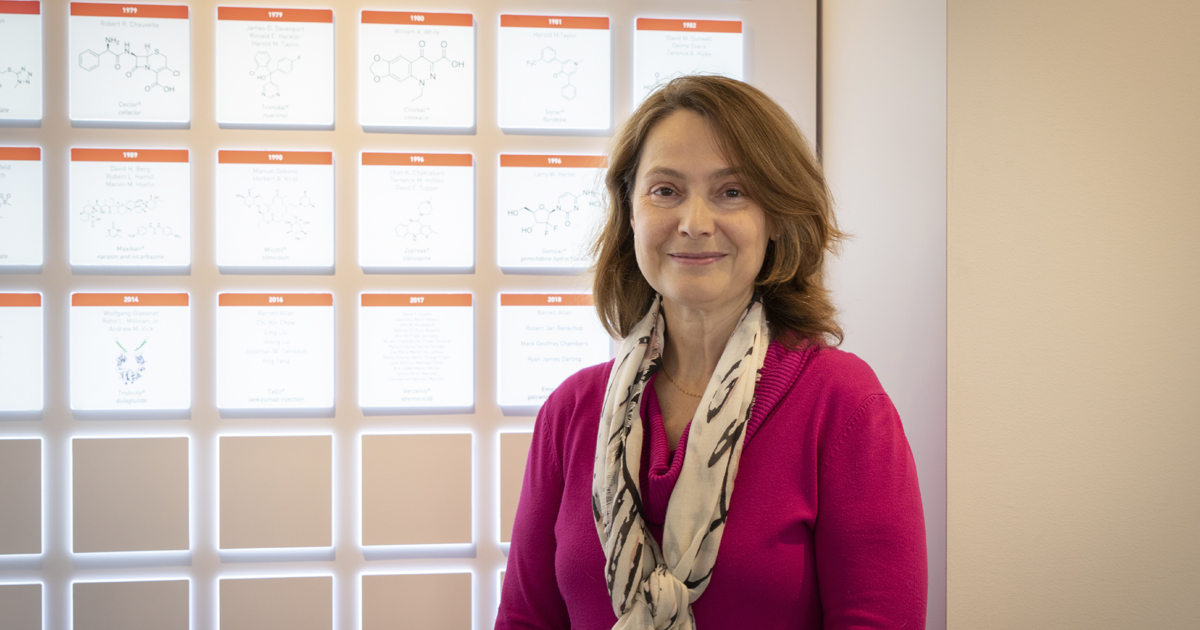
"My interest in science started my last year in high school -- challenging me to catch up with biology, chemistry, physics, and mathematics. When I decided to get a degree in chemistry, it was not because I was passionate about it but because I was thinking practically. I wanted to have a profession I would enjoy while allowing me to live independently and would give me better job opportunities. However, there were few opportunities back then for scientists in any discipline in Spain.
I pursued a Master's and Ph.D. in organic synthesis within chemistry. Lilly hired me as a chemist in Spain in 2000, and I eventually moved to Indianapolis. Since then, I've discovered a fantastic reality -- what we do at Lilly is nothing I could have imagined when studying chemistry or at the beginning of my career. It has been a journey of 20+ years that has transformed me personally and professionally. I found my passion and purpose: medicine discovery and the people we serve.
I'm fortunate that one of my early discoveries for breast cancer treatment is helping people live better lives. I've been involved in projects that did not advance. There are many reasons why a treatment program will never reach the clinic, or a clinical candidate will fail during the clinical trials. But we keep pushing because we know every failure is a learning opportunity to contribute to additional openings for new treatments. There is no innovation without failure.
Cancer and neurodegenerative diseases are the most clinically complex diseases impacting the world's aging populations and affecting all of us. My mom is suffering from dementia, and my younger sister was diagnosed with cancer last year. My job is also very personal for me. I've developed a career where my knowledge can be transformed into tangible opportunities to create new treatments for devastating diseases and improve lives.
My responsibility is to provide the same opportunities to young scientists passionate about treatment discoveries and a commitment to helping people worldwide."
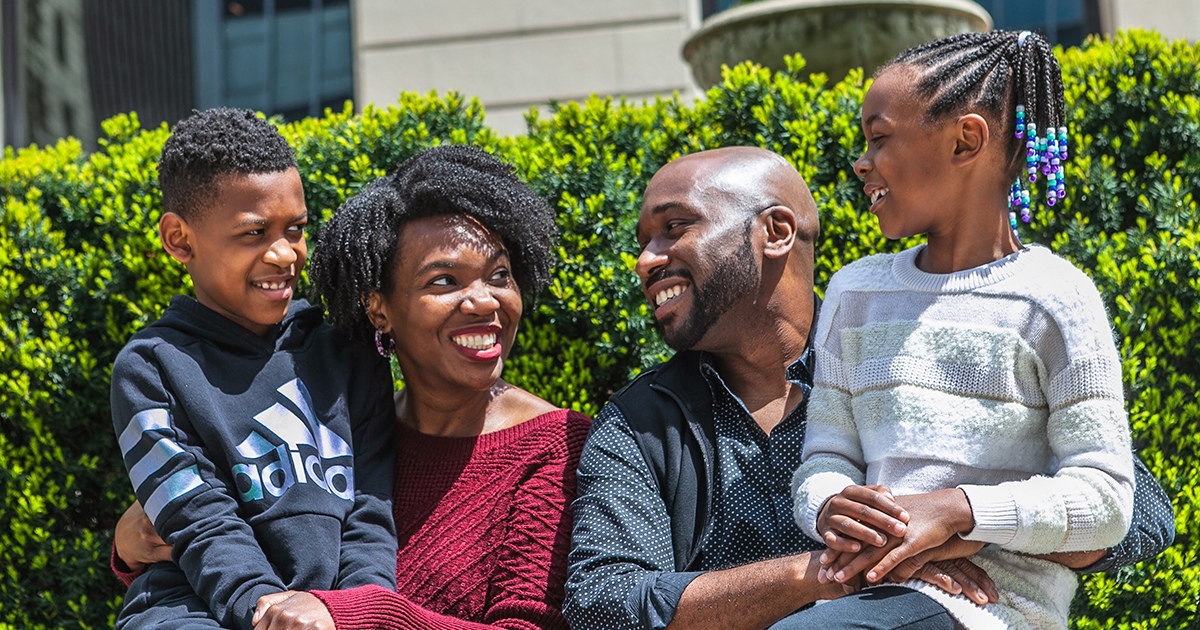
"I came to Lilly after thirteen years of success growing businesses and building brands for various global consumer packaged goods companies. I had reached the point where I was extremely comfortable in my skillset as a brand manager spanning many different industries-- from facial tissue to salt to potato chips. I began to wonder if there was more I could do to leverage my experience to make a larger and more positive impact on the community. While I enjoyed my time growing brands, I was looking for something more fulfilling.
When I was contacted by Lilly, I learned that Black women with cancer have a 40 percent higher mortality rate than the general population. That statistic — and other health-related disparities — really resonated with me on a deeper level. Having many Black women who have always been and continue to be extremely influential in my life — it’s a subject that is extremely personal to me. I envision real people that mean something to me versus simply statistics and having the opportunity to impact those disparities in any way represents a truly extraordinary opportunity!
I’ve been at Lilly for nearly a year and lead cross-cultural consumer marketing initiatives in Oncology. Currently, I’m developing a patient educational program aimed at driving greater cultural connectivity and engagement among Black metastatic breast cancer patients.
I feel that my work is giving people living with metastatic breast cancer the opportunity to have more time with people they love — more moments. It is a fulfilling feeling. Who could pass up that opportunity?"
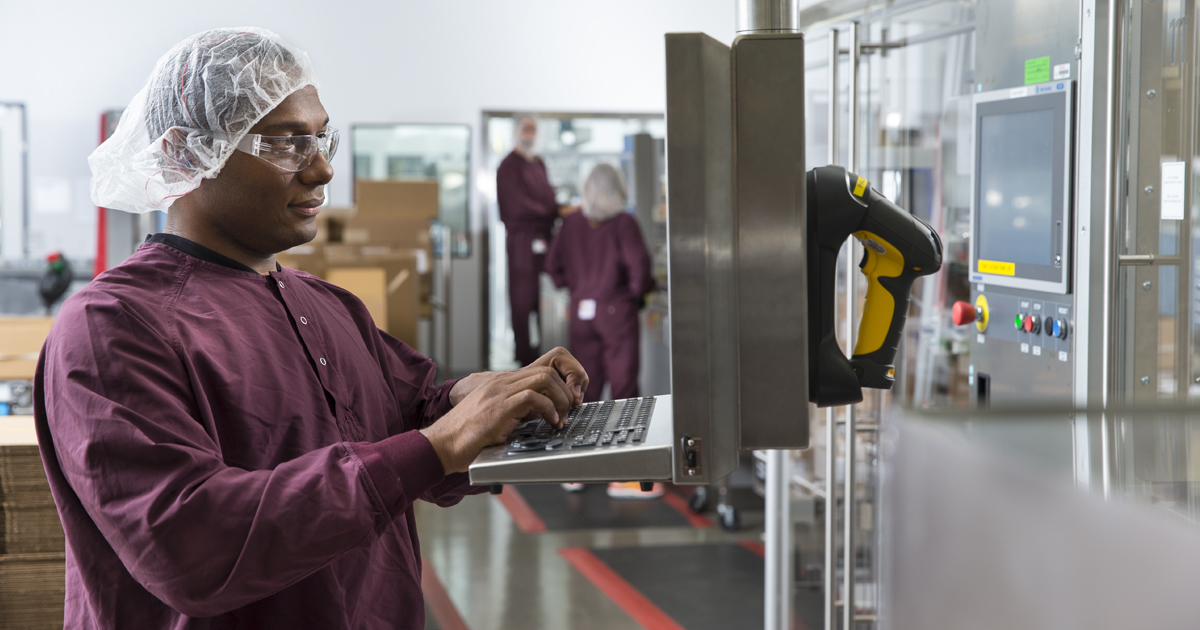
"I work as a supervisor in dry packaging in one of Lilly’s manufacturing sites. We package medicines that come in tablets and capsules. This is a privilege for me because I know people depend on their medicines every day, especially during this time of a global pandemic.
Since we had to ensure that individuals could still receive their life-saving medicines, I worked through the pandemic – that is, until I contracted COVID-19. I wouldn't want anyone else to go through that.
I've seen videos of the results of our medicine on COVID-19 patients. They are inspiring, and I couldn't wait to share them with my crew and show them the importance of what they were doing.
When I tell friends or family members what I do, I know that medicine may be able to help them one day if they need it. I may even touch the very medicine that can help save them. It makes you feel good knowing that you are part of history and helped so many people.
We have photographs of our history around the Lilly campus. Photos of women filling boxes of the polio vaccine. They were a part of something that helped the whole world. Someone from the company asked if they could take my photo for social media and training, so someday my photo may be displayed alongside those women boxing the polio vaccine.
I want to be the best at what I do, so I always ask how I am doing and how can I help employees be more engaged. As a supervisor, you know we're here to do a job. I always tell them how important their work is and make sure to do it right because it's part of an older Lilly slogan, 'If it has a red Lilly, it's right.' We want to keep following through with that.
We sign off on everything we do. My signature is my brand that follows me throughout my whole career. I want my brand to reflect Pat was one of the best leaders, and one didn't have to worry about what Pat was doing because if he was on a job, he was going to get it done."
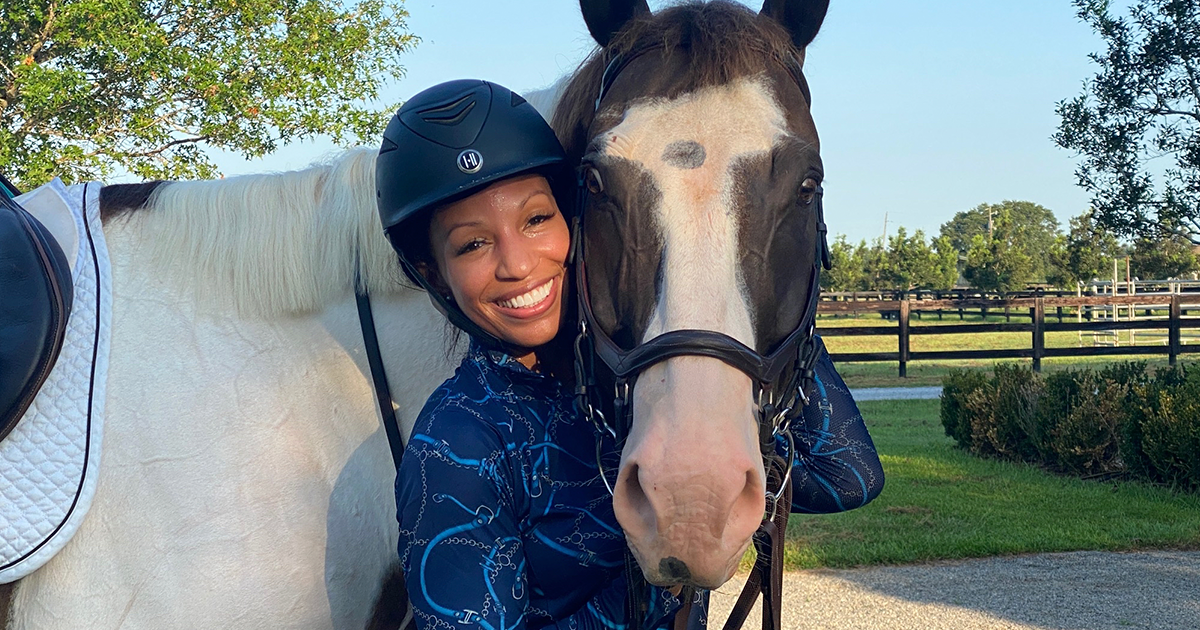
“Working with the Lilly neuroscience team allows me to tap into my master’s degree in Exercise Science to have more effective discussions with healthcare providers. This role allows me to help people who struggle with migraine by introducing approved treatments. I have a saying, ‘Reach the people, teach the people!’
I love being a member of the Lilly family; the countless success stories shared with me along the way and the trusted relationships have confirmed my purpose.
It’s wonderful that Lilly gives us such a substantial diversity, equity, and inclusion platform to discuss our culture, heritage, and what connects us. As a Cherokee and Choctaw woman, it’s been exciting to share the Indigenous journey during Native American Heritage Month.
My ancestors are my inspiration. My great-great-grandmother, who was a Cherokee woman, lived to be 110-years old. My 98-year-old Choctaw grandmother still competes in the Senior Olympics held every year in north Louisiana. They are the reason why I strive to help so many people.
Of all the traditions that have been passed down, I’m most proud of being an equestrian.
Horsemanship is my passion and has always been a significant part of my family’s lifestyle. My 90-year-old Cherokee Native American grandfather, a Korean War Veteran, Purple Heart recipient, educator, and carpenter, speaks about his days on horseback with his father, a WW1 veteran.
Little did I know that sitting in the saddle at the age of 4 would be of greater significance to me as an adult. My family’s passion for horsemanship has allowed me to take riding to the next level - equestrian show jumping. I have enjoyed this discipline for over 17 years now. “Maximum Tornado” is my handsome 11-year-old American Paint gelding who is funny, confident, competitive, and loyal.
Horsemanship aligns with our organization’s core values. Just as the horse expects its owner to respect and operate with integrity and excellence, so do the many people we help regularly. Both are so rewarding and I’m so grateful.”
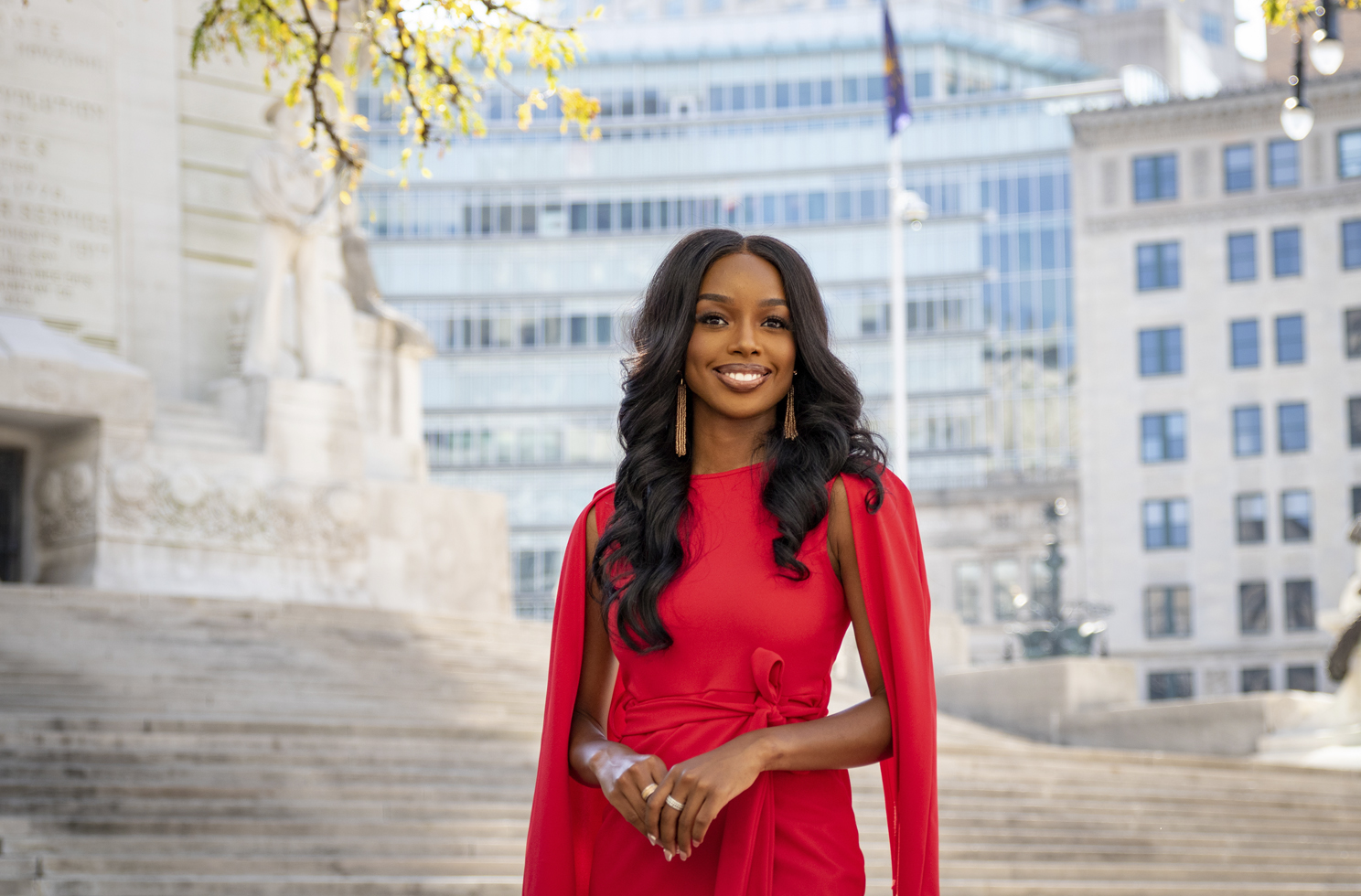
“At Lilly, we are servant leaders in our professional and personal careers. As professionals, we make it our mission to serve people with serious illnesses in a selfless capacity to ensure that we can enable individuals to have a brighter tomorrow. Our integrity for others resounds all over the world and even in our communities.
Growing up around strong female role models gave me the blueprint for what it means to be a servant leader. My love of STEM and passion for science solidified in high school and led me to Indiana University where I received a degree in Biology with a Business Life Sciences certificate.
Lilly is known for its impact through its life-changing medicines and in its commitment to community. I started my career at Lilly as a Pharmaceutical Sales Representative, where I partnered with healthcare professionals to offer tailored solutions to improve diabetes care In these practices, I saw firsthand the burden type 2 diabetes can be on people and their families and how our work in innovative diabetes research and treatment was the difference-maker in their lives. In my current position, I’m part of a team that understands people’s tensions and provides viable solutions to enable them to feel empowered about their diagnoses to improve their health. The passion behind my work stems from seeing many of my family and friends live with diabetes. I know that my work directly effects not only my family but numerous families around the world.
I’m also the reigning Miss Indiana USA 2021. I use this platform to advocate for women’s involvement in STEM fields and empower women to be DISRUPTIVE leaders in their networks through my initiative #DaretoDisrupt. All my life, I have been challenging the status quo, inserting myself in spaces that lack diversity and representation and refusing to become complacent. That is my challenge to all women because the world needs you. It needs your presence.”
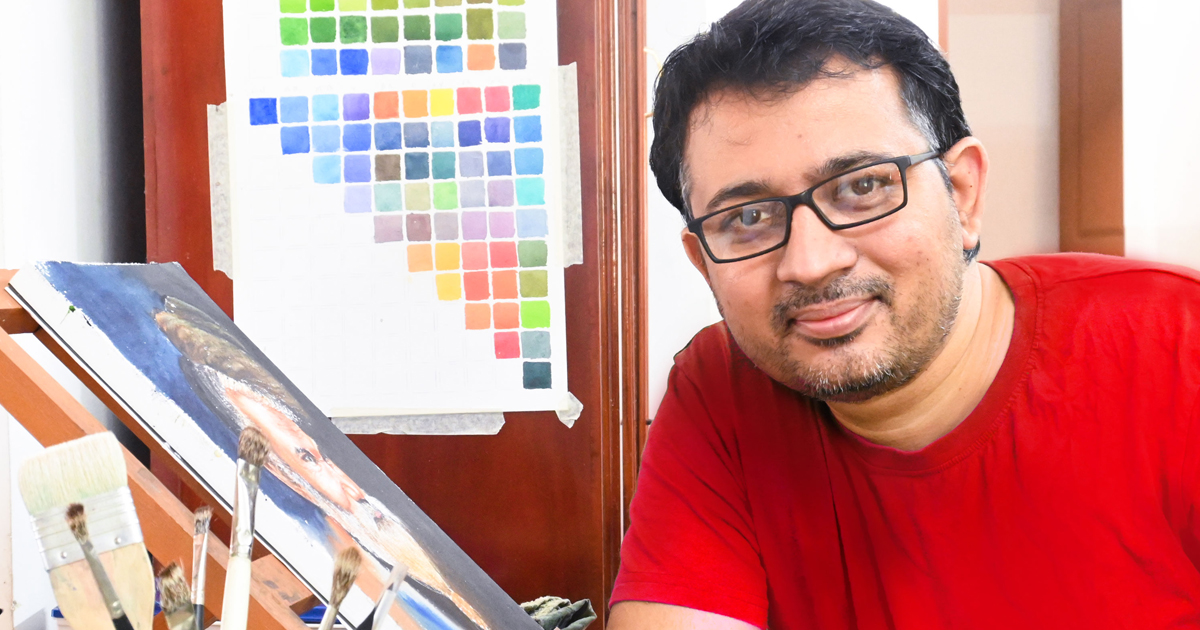
"I work as a Graphic Designer for Lilly Marketing Studios in Bangalore. It is known for the best weather in India and the worst traffic. I support marketing operations for the US and global commercial teams, partnering with the brands to create marketing materials, videos and graphics for various channels and brand teams. We help people understand treatments to improve their quality of life.
I grew up in Kerala, nine hours south of Bangalore. We have beautiful green landscapes and lovely beaches. Those are my inspiration to paint, which I’ve only done for about 3.5 years. I love watercolor for its transparency and ease of use. It is also a difficult medium to master so I found that challenge interesting.
My then 5-year-old son asked me to sit and paint along with him. I used to paint in my school days. It was enjoyable, but my paintings were horrible. I made up my mind to learn it all again and started watching videos and articles online. I committed to spend at least 30 minutes a day painting as a sort of digital detox. The results were inspiring.
COVID-19 played a very important role in helping me get better at painting. Great artists around the world came to the online world with workshops, insights and classes which we could attend from the safety and comfort of our home.
These days I spend on average about an hour for my paintings and make sure I paint at least two works a week. I keep it all documented on my Instagram so I can see the progress I have made since I picked up my brush and paints again. Recently, I completed my 400th painting and I am very happy to see I’m getting better every day. It’s my yoga.
Lilly respects a healthy work-life balance, and recognizes that employees need time for rest and relaxation outside of work. Painting helps me to spend more time at what I love and be fresh at work. Also, there is a great support for new ideas. Painting has helped me to be more creative at work and when people around you trust and respect each other, it takes work to the 'happy part' of your life."
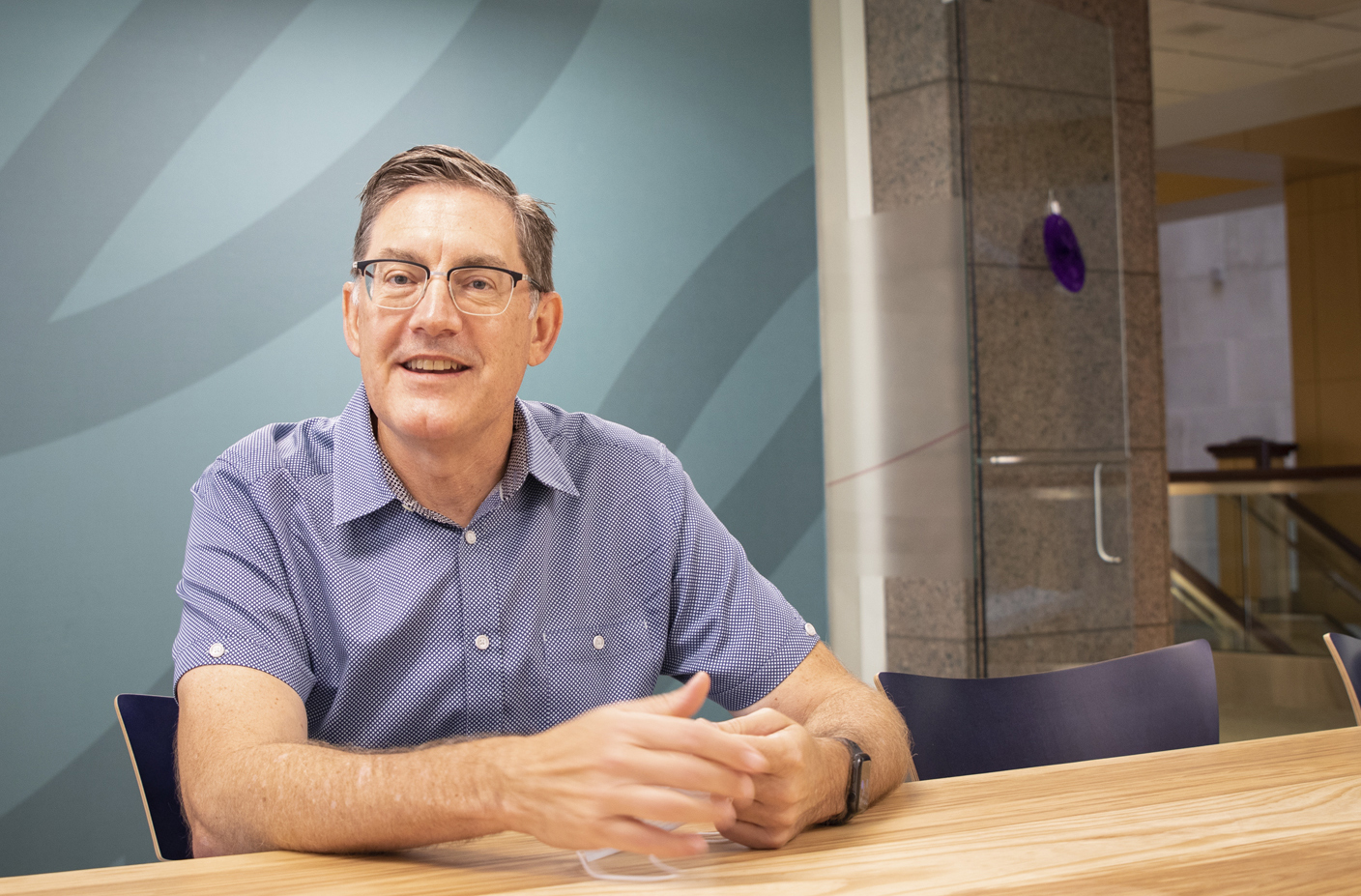
"I was active duty for five years with the U.S. Navy, and for that, they paid for medical school. I did some medical training with them that involved diving medicine, a specialty that diagnoses, treats, and prevents conditions caused during underwater diving.
When I was stationed at Ford Island in Pearl Harbor, Hawaii with the Navy SEAL Team Delivery One, I conducted research to understand how to keep them as fit as possible when they're on long deployments in submarines.
The Navy helped teach me that leadership can be learned, and one should not assume that leaders are just born. All leaders can improve. A team that has no confidence in its leader is more likely to fail.
It was a great experience. And it helped influence a little bit about how I manage people and think about team dynamics. For example, our Alzheimer's research team here at Lilly had non-working weekly lunches to keep the team connected during COVID-19. As far as work goes, each team member has a specialty, but we expect others to step in and carry the extra workload to support each other. Everybody owns the problem.
I'm passionate about anything I do, and for me, it's about making a difference in the world. When I drop my children off at school in the morning, the one thing I say is, 'go learn something and make a difference in the world.'
So, I work hard and try to live up to that with my work in finding Alzheimer’s treatments. The disease started with my grandmother. I have very vivid memories of my her at my brother's wedding, and me sitting at the banquet table and hearing her repeating time and time again the same thing. And then, my father's sister had it. And then, my father. I've seen Alzheimer’s in each one of them. So, I feel strongly about this. And of course, it hits so close to home that it's just that much easier to work long hours and push myself to the limit to make a difference, and hopefully, bring something that can help millions and millions of people."
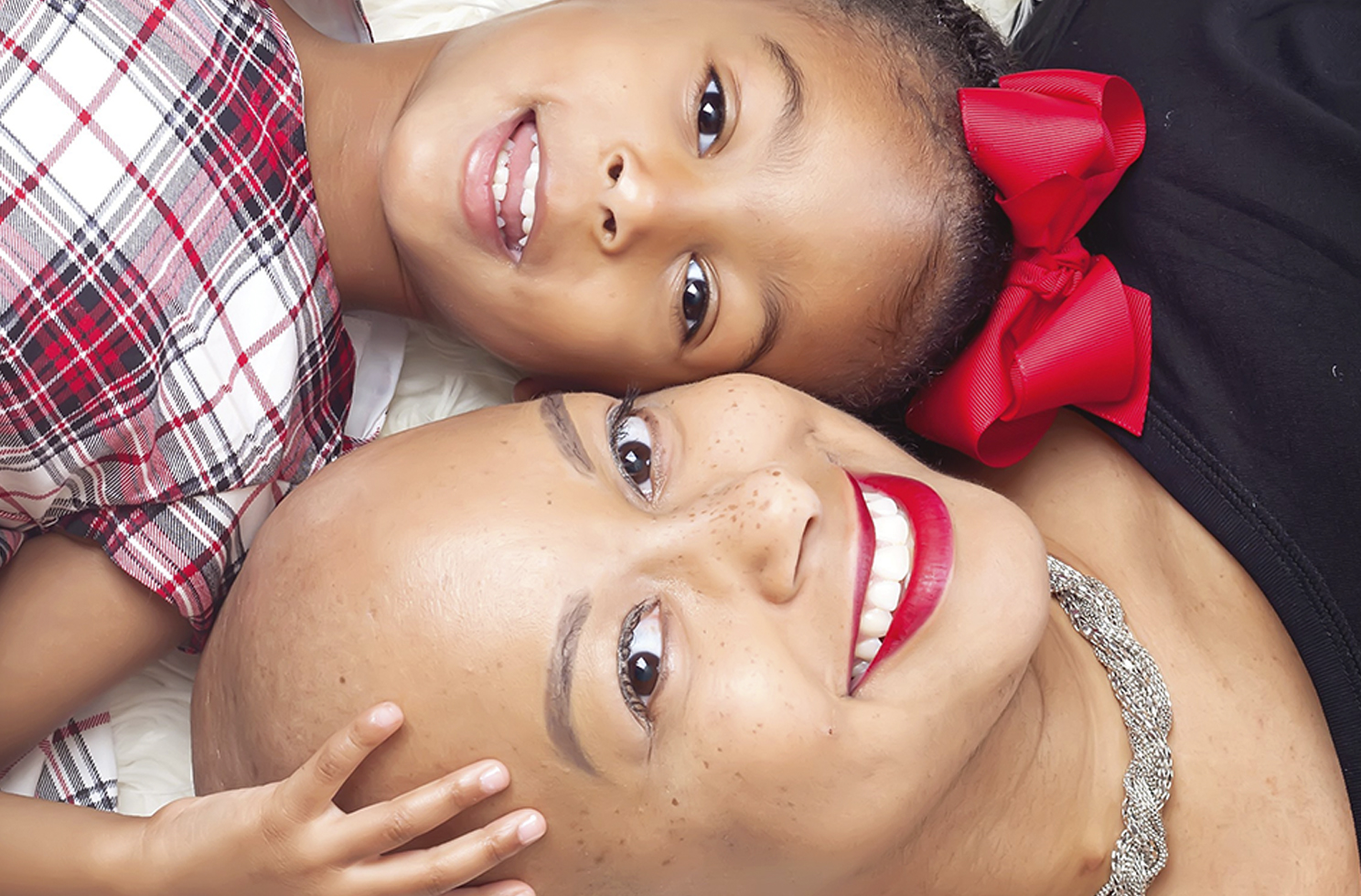
"I had been experiencing pain in my breast and could feel a lump but disregarded it as 'fibrocystic breast disease,' a common condition I was diagnosed with in my 20s. My primary care physician recommended I get a mammogram and ultrasound.
A biopsy revealed the diagnosis of I quickly learned that among women younger than 45, the incidence of breast cancer is higher in Black women. Additionally, younger women in general, and younger African American women, more specifically, are more likely to present with a subtype of the disease. This subtype is both more aggressive and associated with higher mortality.
With no known family history of breast cancer, I didn’t feel I had a reason to be on alert or do breast exams. After my diagnosis, treatment, and meeting several other young women during my process, I highly encourage all women to do monthly breast exams to know 'their normal.' Early detection can not only increase treatment options but also potentially save a life.
After losing my mother several years prior, to another type of cancer, I knew I did not want my daughter to experience life without her mother. Vivian, affectionately named after my mother, was the driving force behind my determination to do all I could to overcome cancer.
As a Campus Relations/Diversity Recruiter for Lilly, I get the opportunity to connect with students across the US and provide career guidance and discuss options they might have never considered. What powers my purpose in my job and life is knowing that I can positively impact lives through being my authentic self, sharing my story, and promoting early detection.
I am proud to work for a company dedicated to bringing innovative medicines to market, significantly impacting patients’ lives."
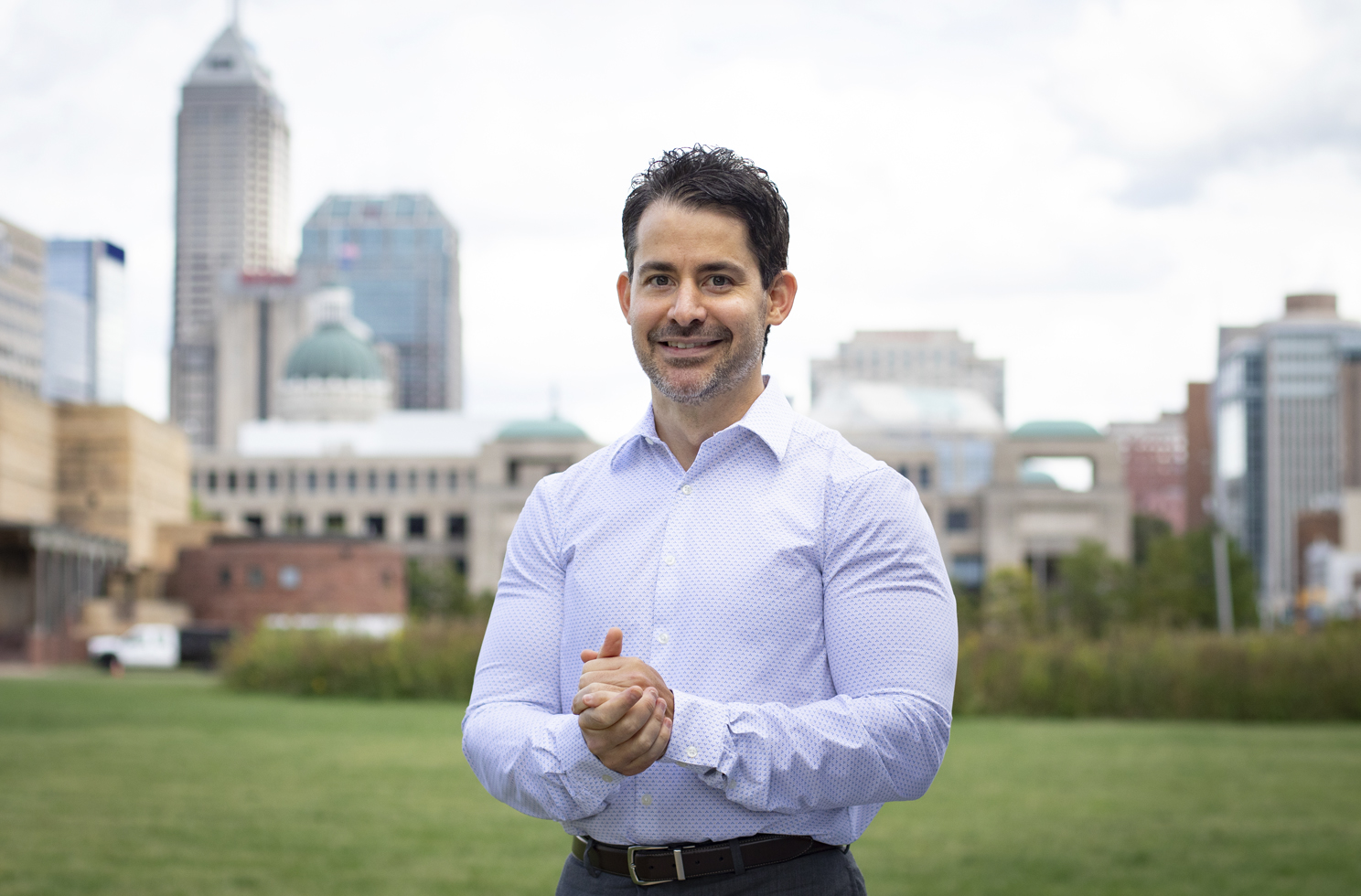
"I came to the U.S. from Oaxaca, Mexico, in 2007 with no friends, no savings, and no English, but believing in the American dream. It has been a fantastic journey, but not everything has been happiness and rainbows; it has been challenging, with hundreds of rejections, setbacks, tears, failures.
In my journey, I have been lucky to cross paths with fabulous individuals along the way who have opened their doors and help me to develop professionally. And with a lot of hard work, persistence, and determination, I gained experience in multiple industries that enabled me to have the qualifications to apply for an opportunity at Lilly.
My experience at Lilly has been incredible. I get the opportunity to work with amazingly talented and caring team members. As a Latino at Lilly, I feel respected and included and I love that I have the chance to work with other Latinx teammates and people that care about me and my journey. It is like a family.
As a Diversity Talent Scout, I get the chance to bring awareness about the diverse landscape of our great nation and the importance of having access for everyone interested in working at Lilly so we can benefit from the rich and diverse contributions to our purpose.
I dream of corporate America, where anyone has equal access to employment and opportunities. Working for Lilly has made me feel that more good things will come with hard work, persistence, and optimism. I still believe in the American dream, a dream for all."
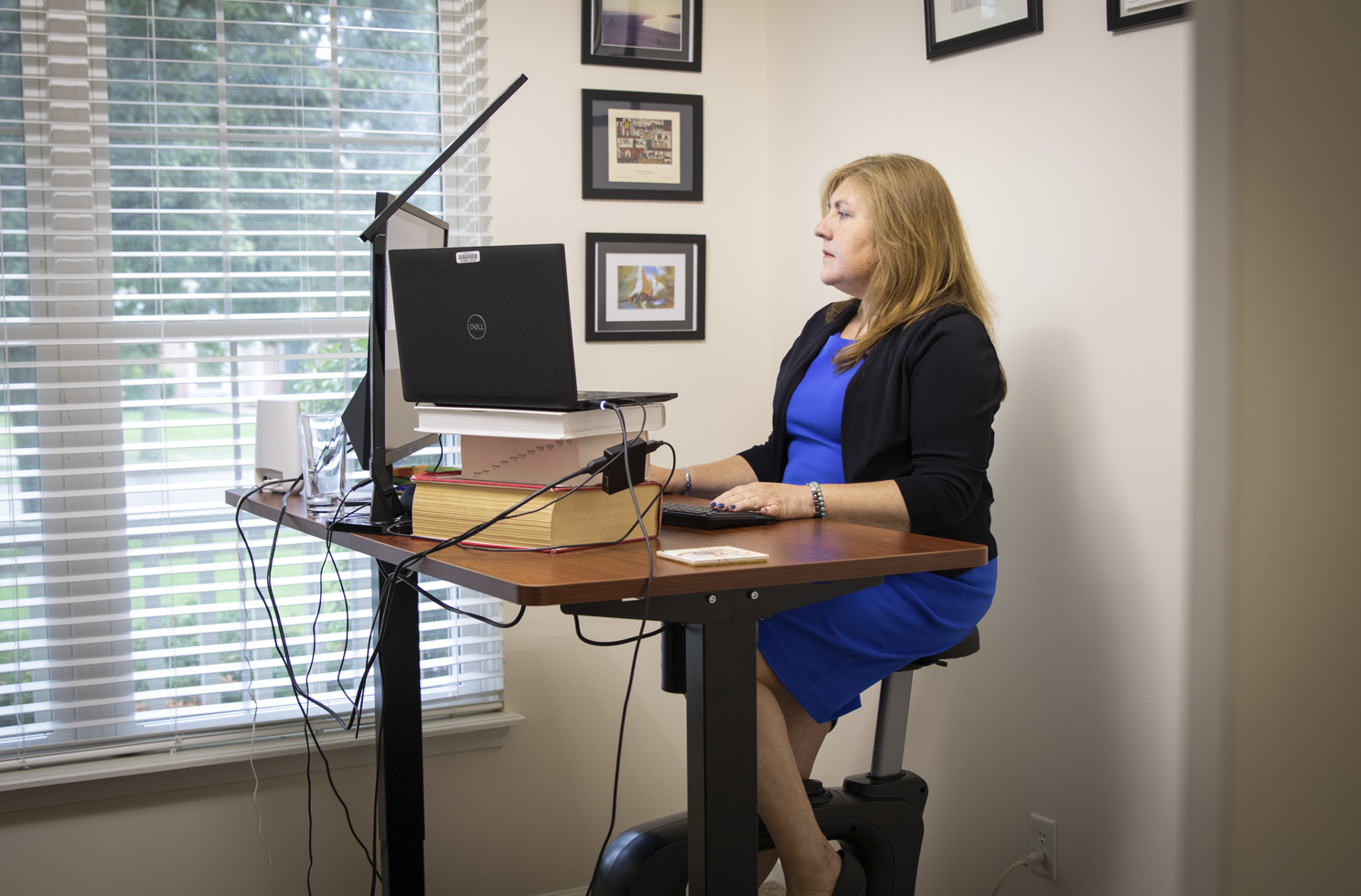
"As a child, I wanted to know everything about Biology. I spent my summers in La Floresta, a small family-oriented seaside town in Uruguay with plenty of natural life to study and marvel at. Chemistry became my favorite subject in high school, until I discovered Pharmacokinetics and Pharmacodynamics while studying towards my Pharmaceutical Chemist degree in Uruguay. After courses in a variety of basic and applied sciences, Pharmacokinetics and Pharmacodynamics (PK/PD) finally made sense to me.
Many people fostered my curiosity along the way and provided opportunities that ultimately allowed me to pursue my Ph.D. studies, including my parents who stressed that I could become whatever I wanted to be and put a huge emphasis on education and on the financial independence of women.
I'm proud to foster and mentor the next generation of diverse scientists through my participation in the Organization of LatinX at Lilly. I also co-lead the annual Young Innovators Quest (YiQ) visit to Lilly, where advanced high school students get to listen to scientific talks from Lilly experts, get feedback on their projects and tour Lilly’s labs.
My passion is fueled by the patients we serve and the smart, caring people I work with. As a young scientist, I mentioned to a senior colleague that I missed interacting with patients as in my days as a clinical pharmacist and seeing how my work positively impacted their health. They pointed out that as a scientist at Lilly, I had the potential of helping improve the health of so many more, even if I didn’t see them personally. I later experienced this satisfaction as the PK/PD lead scientist for two of Lilly’s innovative diabetes medicines.
I want my legacy at Lilly to be one of an inspiring leader who has been resilient and conquered barriers in both the personal and professional arenas, with integrity and respect for people, who has been adaptable and made data-driven decisions and has an eagerness to learn and improve each day."
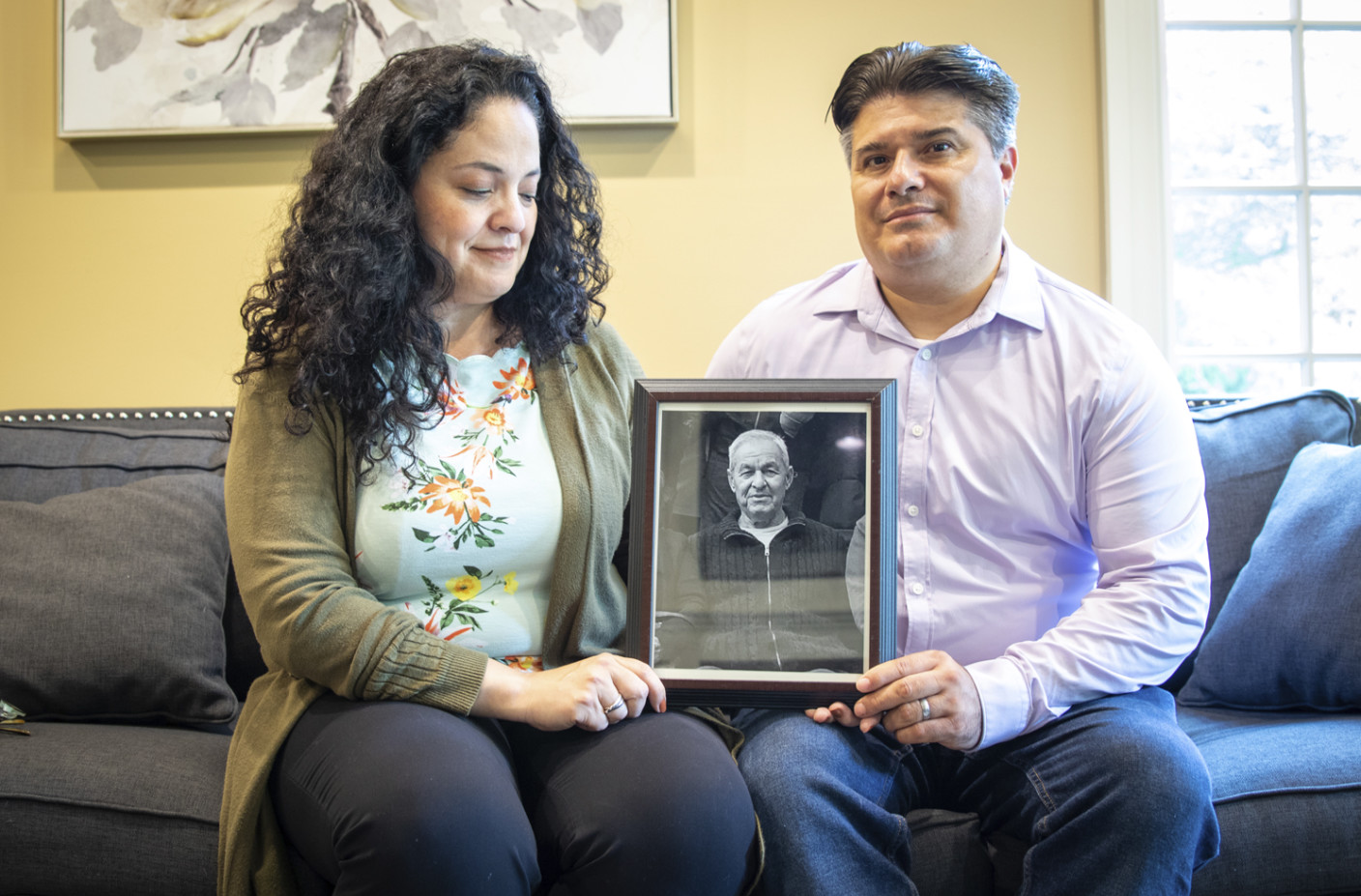
“I moved from California to Indianapolis to join Lilly 17 years ago to contribute to making a positive impact on people’s lives. As a proud daughter of Mexican immigrants, I’m passionate about ensuring that impact reaches the most vulnerable members of our communities. My heritage and desire to support the Latinx community is also the reason I chair Lilly’s Latinx Employees Resource Group, which helps our Latinx employees feel welcomed, respected, valued, heard and represented at all levels of the organization.
Just before COVID hit, my parents moved to Indianapolis to live with my husband Francisco, our three children and me. We were extremely cautious because my parents were at high risk for the virus – my children attended classes remotely, outside activities were suspended, and my husband and I worked from home.
We were grateful for our health and encouraged our extended family in California to do what they could to stay safe as well. One of the first people to fall ill was Francisco’s mother, she was followed by others, including her husband.
My father-in-law was in the hospital for three months, in the ICU most of that time. There were several times the family thought it was goodbye. He would start to improve, and we'd start to hope, and then he would deteriorate and we'd go through it all over again.
I remember seeing the news about the emergency use authorization (for Lilly’s antibody treatment for COVID) and turning to my husband…we both looked at that and looked at each other and just had a moment of, “if only.” By then, he was too sick for it to be an option. He passed away right before Thanksgiving.
When we talk about our purpose at Lilly – to make life better -- it's why we come to work every day. The pandemic has brought to light how important it is to be intentional about getting these life-saving medicines to the people that need them most. I think it starts there, recognizing the experience, and then being willing to say, “OK, who do I need to work with to ensure that we can change this?” Our experience with COVID has reinforced how big a difference we can make. And we can do even more.”
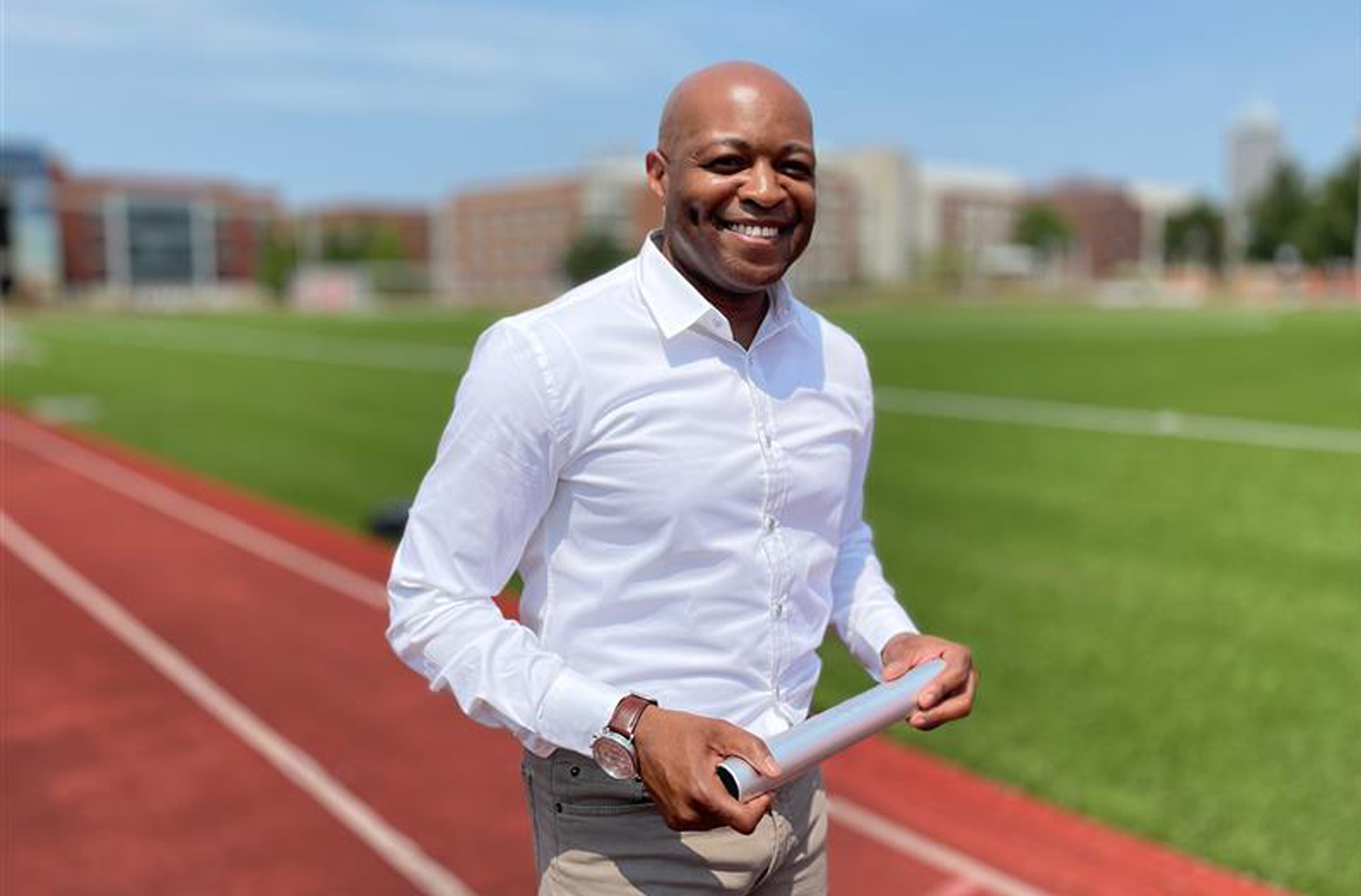
“The essence of Lilly’s purpose is people -- making life better for people around the world. It’s not hard to get our own people rallied around that cause. It’s why we joined this team, to make a difference.
I was a sprinter and a hurdler in college, at #Purdue University. I try to bring the mentality I had then into leading my team now – a winning mindset and a desire for continuous improvement. Now, it’s about winning for the people we serve around the world…not maintaining the status quo, bringing new treatment options to people who need and deserve them.
I started my Lilly career in oncology. Winning was giving people diagnosed with cancer more time -- another birthday, or the chance to experience a graduation or wedding of their grandchild. In diabetes, it was about understanding how challenging it can be for people to successfully manage their blood sugar, and helping deliver innovative solutions.
In immunology, where I am now, it’s hearing the stories of what new medicines can mean to people…understanding the burden of ulcerative colitis and Crohn’s disease, knowing how tough it can be day-to-day…what it might feel like to experience a day without debilitating symptoms that impact someone’s ability to work, and their overall quality of life…a day without rushing to the restroom just to make it in time…a day of not having disease-related abdominal pain…
Those are the types of stories that keep me at Lilly and focused on the task at hand, my purpose – to bring medicines across the finish line for the people who need them.”

